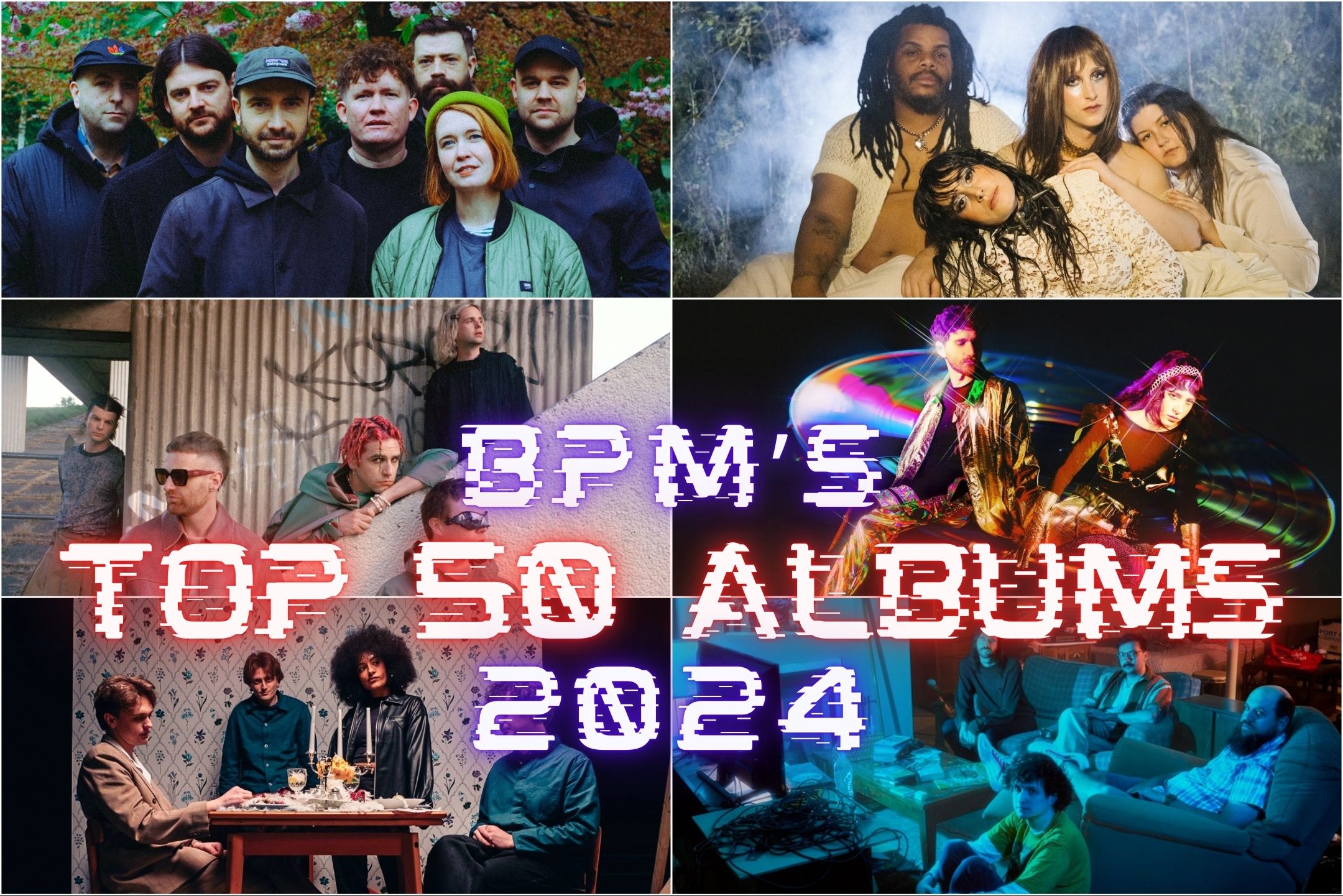Well, 2024, it’s one for the history books, to say the least. Thankfully, here at BPM we only focus on one small sliver of it known as popular music. However, there is still way too much of that for us to have the time to fully embrace, but we do our best.
Even among what we’ve heard, whittling it down to a final Top 50 to represent the best of the last 12 months is a nigh on impossible job. So, we use the best system we have: democracy. You might have heard a bit about it this year, no matter which corner of this globe you’re from. It’s far from perfect, but it at least ensures that everyone has a say – and when it comes to our Albums Of The Year ballots, we have a lot more than merely two candidates to vote for.
In fact, this year, like every year in music, the cream of the crop is a mosaic of styles, moods, tones and textures. We’ve done our best to crochet it all together into a loving patchwork; the pieces may not seem like they naturally belong together on the surface, but it’s representative of the diversity our community holds. Wrap yourself in the whole thing or tuck yourself into a preferred corner – there’s plenty here to keep us all warm this winter.
Listen to a Spotify playlist of our highlights from our Top 50 Albums of 2024 here.
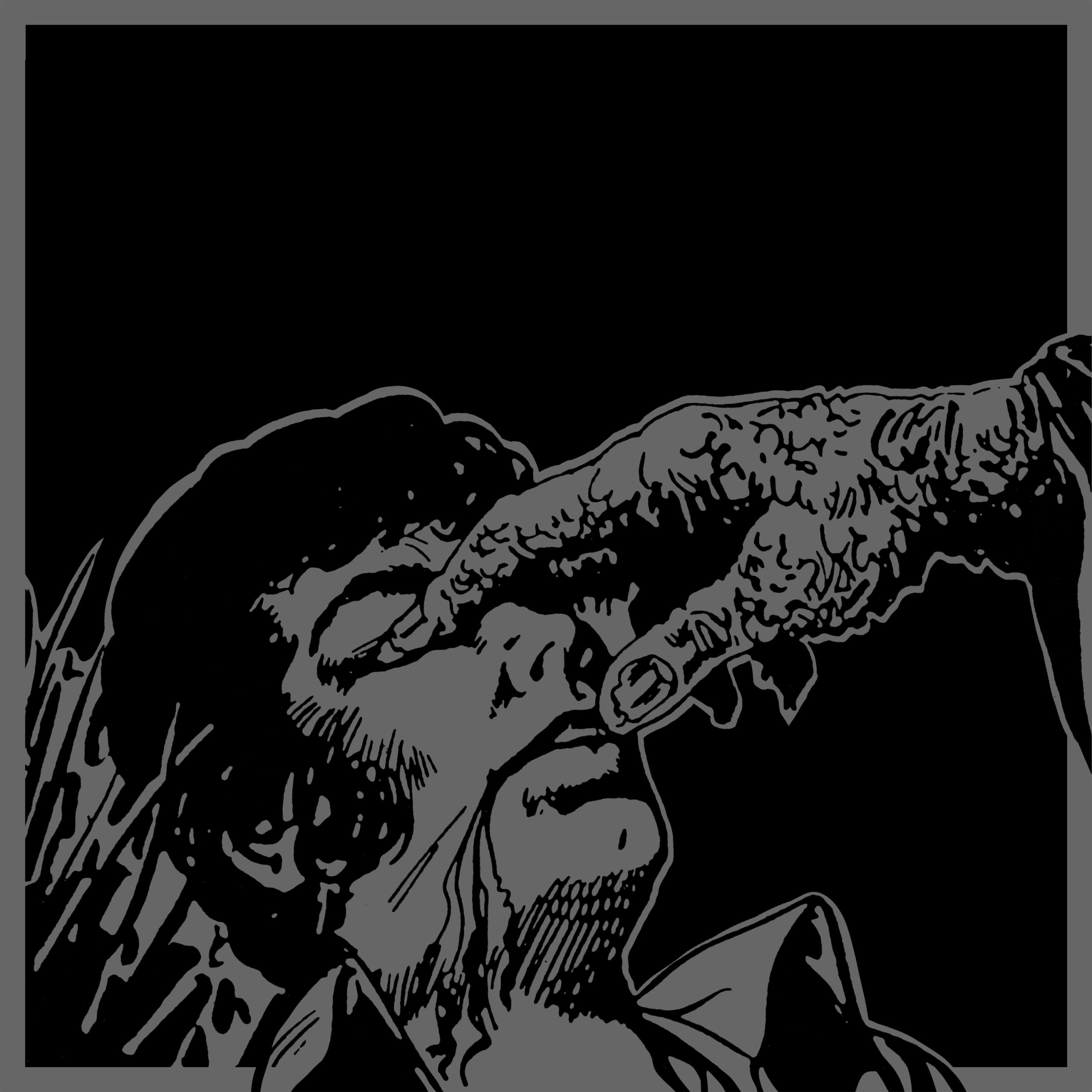
50.
Couch Slut – You Could Do It Tonight
[Brutal Panda]
Couch Slut fucking scare me. From their conceptual design elements – the black-and-grey collage-works of adult 1970s comic imagery – to Megan Osztrosits’ (blood-covered) live performances and her lyrics’ truly garish topics of self harm, serial killing and sex transgressions, the New York City five piece has an aura of violent, disturbing degeneracy. It’s the kind of shit Hubert Selby Jr. would write, only to leave it for decades untouched, until he could finally stomach to read it.
Where the illusory lines of performance, parody and possession mix, the band finds a noise rock gesture that is uniquely New York, as the corpses left by Swans, The Cramps and Teenage Jesus & the Jerks masturbate in the shadows to every line. You Could do it Tonight marks the band’s 10-year anniversary since the release of their debut album, and the first outing of new guitarist Dylan DiLella – and it’s the group’s best effort so far!
That’s thanks to a newfound, almost carnivalesque tone to the string work and spatial quality in Osztrosits’ vocal nuances. Couch Slut had always played with sludge metal and spoken word violence, but on You Could do it Tonight, the rhythms and darting deformed guitars create a vertigo-like horror, as Osztrosits unleashes wyrd stories of men sawing their arms to the bone to extract blood for pornographic puppet plays (“The Donkey”), of suicidal teenage borderline experiences (“Wilkinson’s Sword”) and serial killers stalking high schoolers (“The Weaversville Home for Boys”). It’s a record so exceptionally grim, it falls in line with the type of horror films you only ever find on “most disturbing movies”-lists, shot with minimal budget somewhere in remote location and unavailable on commercial platforms.
You whisper only to specific friends that it’s a masterpiece, those who understand. The album is transgressive art that is wholly self conscious, a definitive American experience that overshadows its contemporaries and is necessary in the era of CEO killings, state-approved genocide and fascist rise to power. I warmly recommend it, with holy water and tequila nearby. – John Wohlmacher
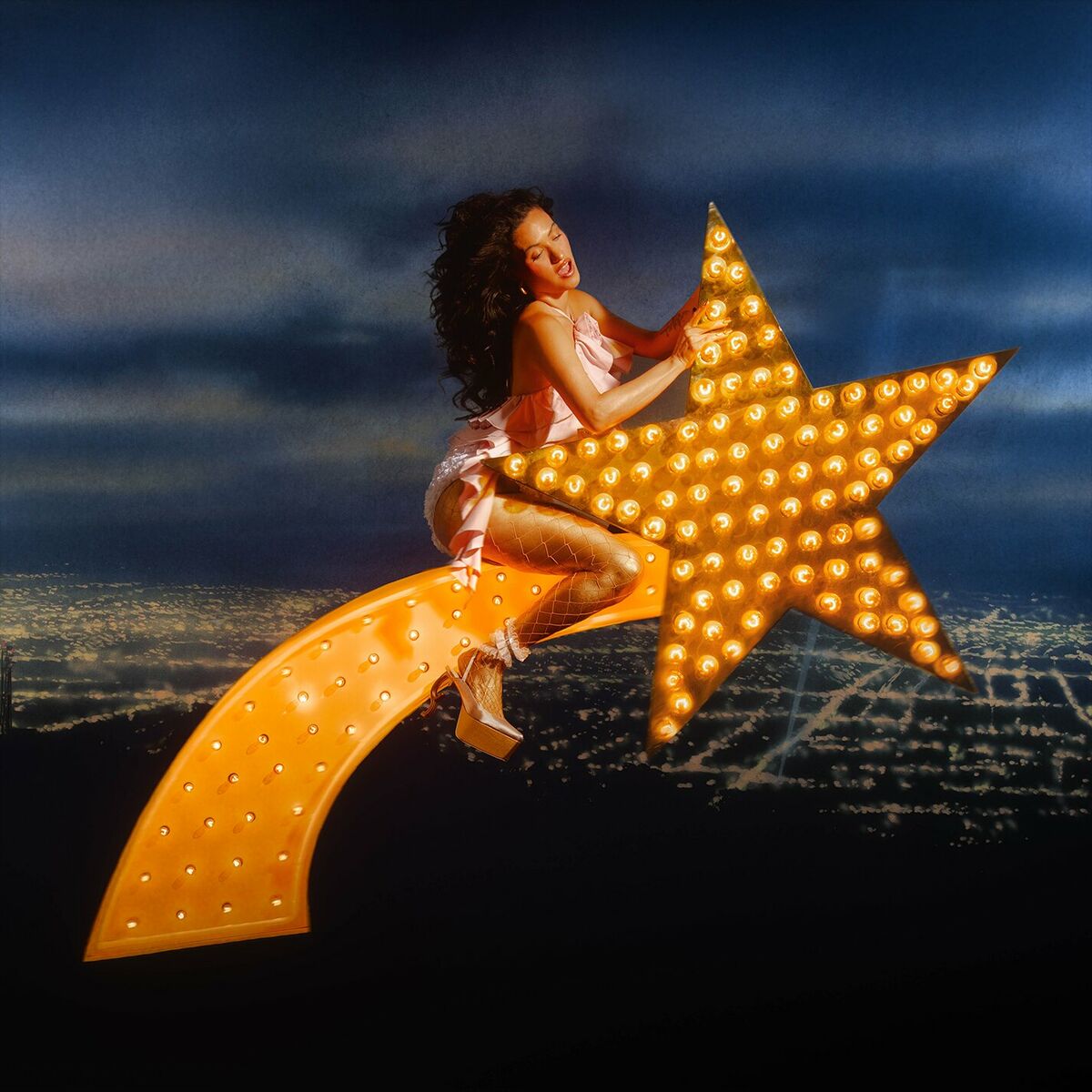
49.
Empress Of – For Your Consideration
[Major Arcana/Giant Music]
In a year when pop heavyweights stole the headlines, raised the bar for product saturation with countless variants, or literally defined the colour of an entire season, one woman quietly released one of the most accomplished pop records of the past decade. Lorely Rodriguez, aka Empress Of, is four albums deep into her career, and seems to only be getting better.
Her beautifully elastic voice, flitting between English and Spanish, has excelled on certified banger productions and heart-rending ballads alike, and on For Your Consideration she has found her most consistent set of songs to cast her particular spell over. The title is a nod to the doomed, short-lived romance at the centre of the album’s narrative, which came to an end during her partner’s Oscars campaign, but it also serves as a cheeky nod to the fact that this is clearly awards-worthy material. There’s no doubt that Rodriguez aimed high; this is the first of her albums to feature guest appearances (from Rina Sawayama and MUNA on two of the LP’s highlights), and is the first she has executive produced, bringing in a raft of talented names, which results in a deliriously creative pop album whose melodies worm their way into your brain, and whose depth of feeling tugs at your heart. – Andy Johnston
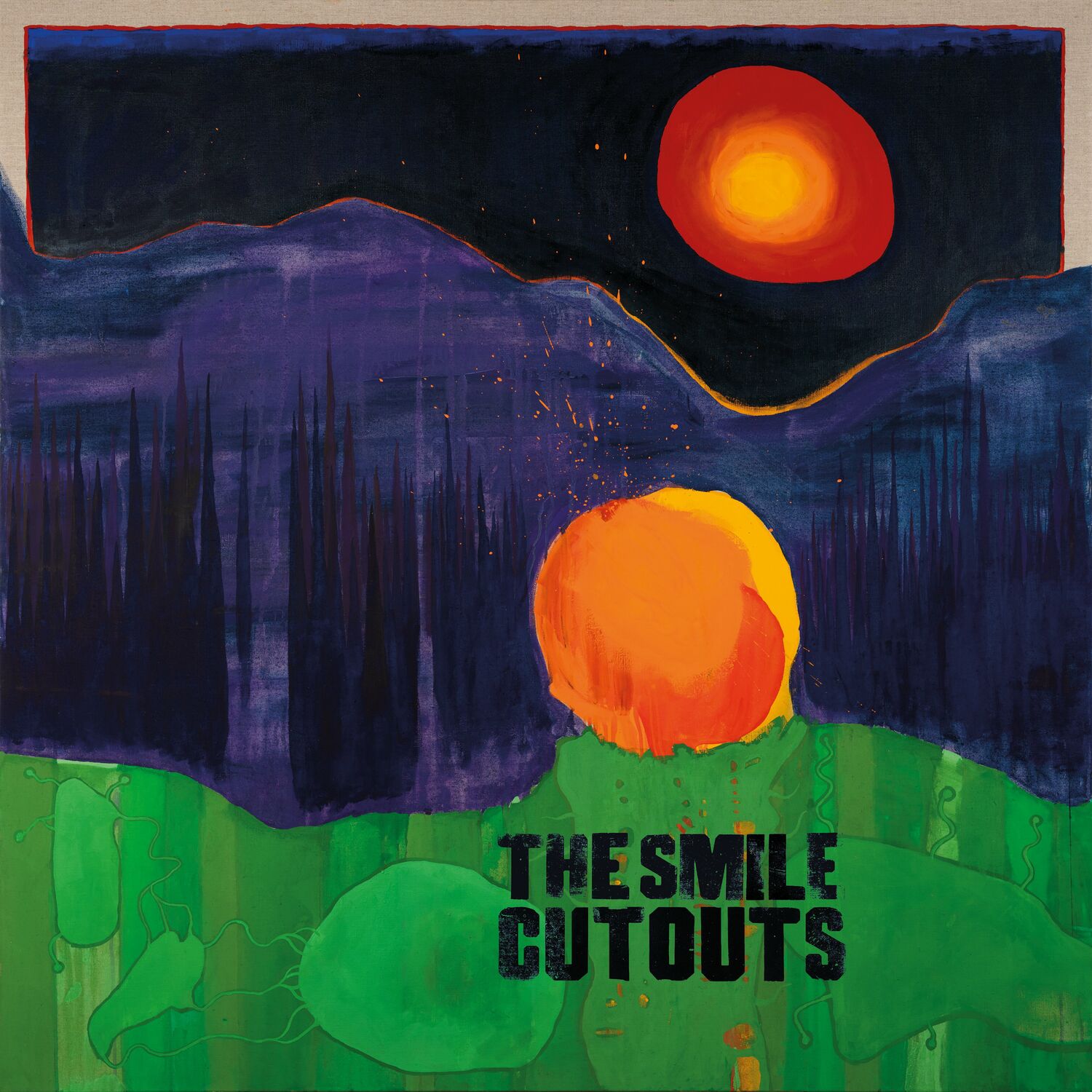
48.
The Smile – Cutouts
[Self Help Tapes/XL]
The Amnesiac to Wall Of Eyes’ Kid A, Cutouts (temporarily, at least) establishes The Smile as…yeah…kind of a jam band. A funky, Phish-ness imbues “Zero Sum”’s marriage of Talking Heads to Extreme’s “Flight Of The Wounded Bumble Bee” or the Latino classic rock in “The Slip.” Persistent cloud cover keeps Thom Yorke from truly finding his inner Trey and Cutouts’ most Radioheady moments are its darkest (“Foreign Spies”, “Tiptoe”); however, the point can now be made that those are also the least Smile-y tracks because Cutouts is the album where The Smile really feels like its own thing. – Steve Forstneger

47.
Hana Vu – Romanticism
[Ghostly]
With Romanticism, Hana Vu blends theatricality and catchy songwriting, posing philosophic questions, venting angst and reveling in balmy hooks. On “Hammer”, she sounds like someone burdened with chronic fatigue. And yet, her melodic lines shimmer, culminating with a cathartic chorus, exemplifying her ability to contextualize trauma within pop templates.
On “Alone”, Vu’s voice and melody exude buoyancy, even as her lyrics evoke loneliness (“between my teeth there’s a bullet hole”). “I scream so loud / because I don’t exist no more”, she proclaims on “22”, painting a portrait of someone in spiritual limbo. Though conveying a palpable agitation, the song soars, as if carried by a celestial updraft.
“I Draw a Heart” opens with a mock-sentimental take on idealized romance but segues into images of heartache and self-destructiveness (“I lay passed out in the arbor”). The album concludes with “Love”, which explores self-doubt as much as attraction and resignation as much as acceptance.
With Romanticism, Vu is at once confessional and deflective, self-possessed and dissociative, direct and elusive. The daughter of TikTok radio, the goth poem, and identity fluidity, she speaks to the impact of conditioning and the specter of meaninglessness. With Romanticism, she stands bravely at the intersection of despair and enlightenment. – John Amen
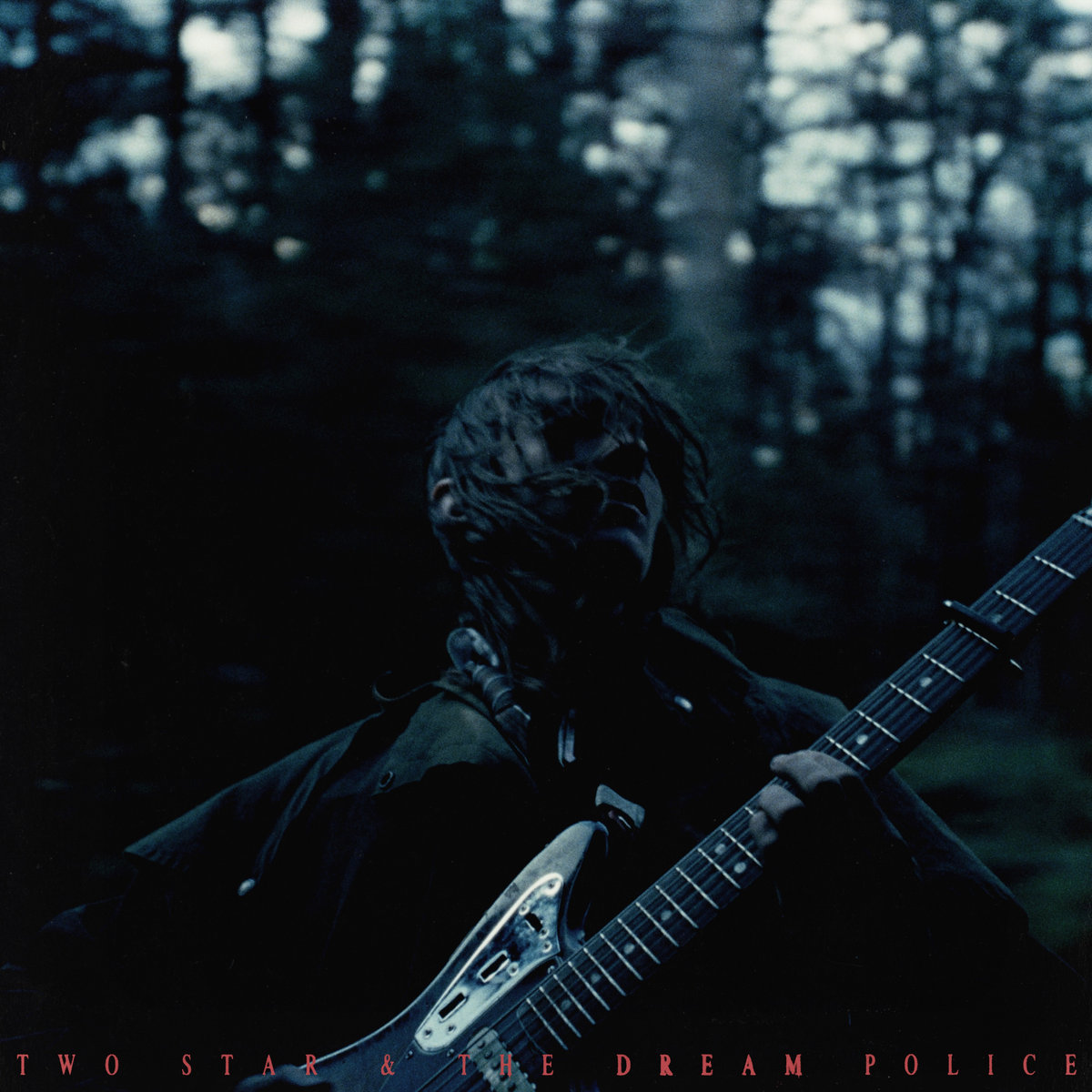
46.
Mk.gee – Two Star & The Dream Police
[R&R Digital]
Mk.gee’s Two Star & the Dream Police is nothing short of an understated revelation—an emotional and musical kaleidoscope that blends neo-psychedelia, bedroom pop, and alt-R&B with disarming charm and ease. On paper, Mk.gee’s nasal wails and stripped-down guitar rock seem like an odd pairing, and it can even feel harsh on the ears for some listeners; think Justin Bieber — or at least the idea of him—mutilated and then re-engineered within the confines and restraints of a mere motel bedroom, set in the 80s of course. Sounds unsettling, certainly. Yet, drowning under a lo-fi, pseudo-shoegaze haze, Mk.gee’s heart beats loudly and uniquely with raw intensity and a rhythm that balances chaos and clarity to create a deeply atmospheric, amorphous whole.
Songs like “How Many Miles” and “Alesis” hear Mk.gee’s raspy croon rise and cut through a swirl of both gray and colorful guitar hues, channeling isolation and heartache with an almost painful nearness. This overarching tension between grating and gorgeous offers a uniquely intimate though very alien experience — one that is dizzying in its contradictions yet one that lingers in your mind long after its final notes fade. – Kyle Kohner

45.
Gillian Welch & David Rawlings – Woodland
[Acony]
How do you find the strength to pick up and rebuild in the wake of destruction? When portions of Nashville were destroyed by tornadoes in 2020, Gillian Welch and David Rawlings were faced with that question. Their base of operations, Woodland Studios, was severely damaged, and it took them a long time to get it on its feet again. The pair’s latest album is named after this musical sanctuary and finds them reminiscing on connections, professional and personal, intimate and universal. Their voices merge and ascend together, their balladry as keen and piercing as always. From memorials to lost loved ones (“Hashtag”) to yearning for younger affections (“What We Had”), they waltz arm in arm and body to body, memories and dreams reconciling into a pastoral reflection of their turbulent lives. We’re pulled out of time, cut loose from the burdens of our own reality. Welch and Rawlings lay it all out for us – the good, the bad, and everything left unsaid. – Joshua Pickard
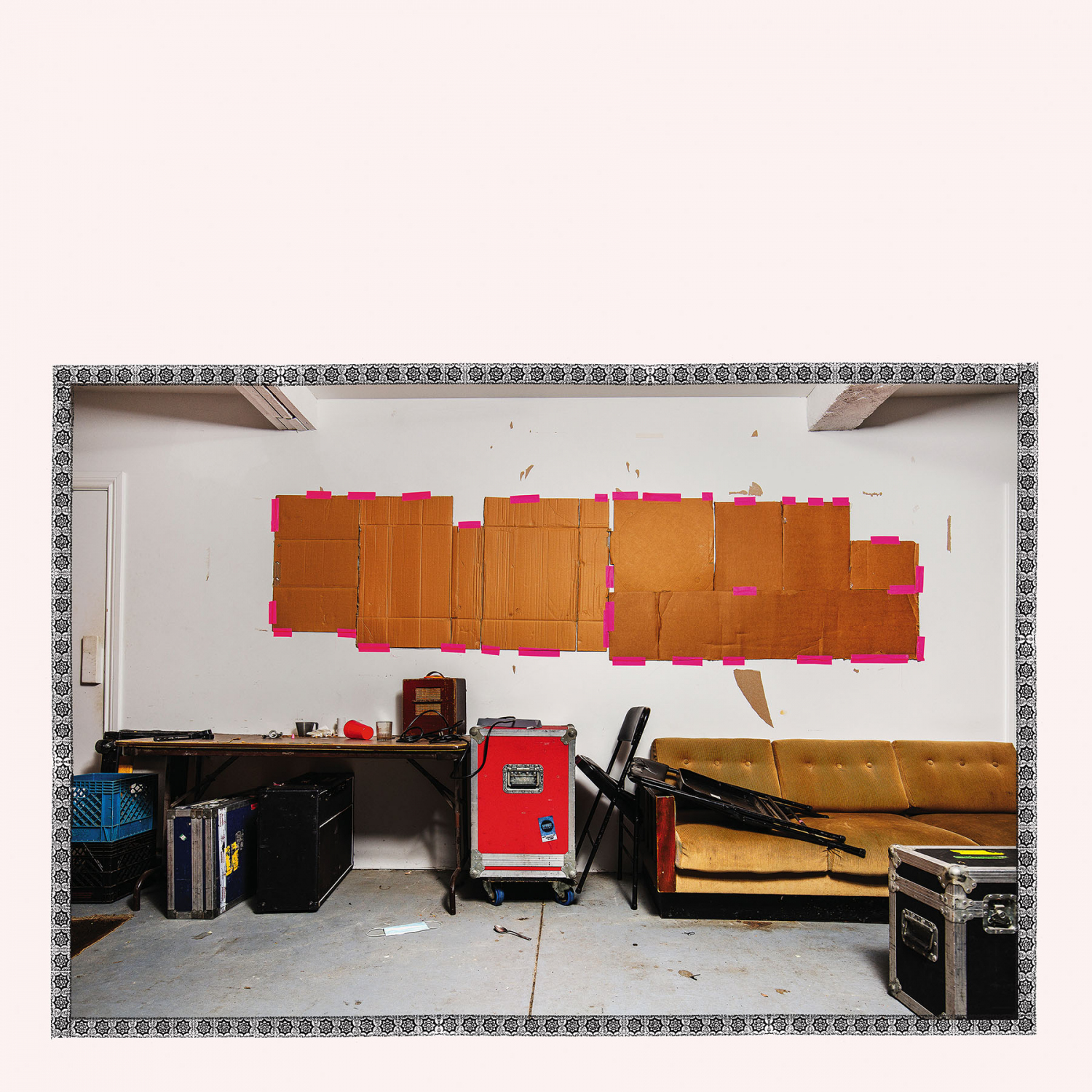
44.
Godspeed You! Black Emperor – “NO TITLE AS OF 13 FEBRUARY 2024 28,340 DEAD”
[Constellation]
NO ALBUM OF THE YEAR BLURB AS OF 13 December 2024 44,786 DEAD. – Todd Dedman

43.
Billie Eilish – HIT ME HARD AND SOFT
[Darkroom/Interscope]
If Billie Eilish knows one thing, it’s how to make a hit. She’s been making them since her early days, and there’s been plenty to choose from, be it picked from her first two albums or her soundtrack work (just look at the skyrocketing trajectory “What Was I Made For?”). So when HIT ME HARD AND SOFT arrived with some surprise earlier this year, folks knew they were in for more hits.
And they got plenty of them. Look at the coquettish “LUNCH”, which baggily flirts with such an elegant ease, or the murky, rippling “CHIHIRO” which sparkles amidst the enveloping darkness. “THE GREATEST” bursts open the doors as it says goodbye to an ex while “WILDFLOWER” sways with melancholic allure. Being Eilish’s bonafide “album-ass album”, it also offers up a glimpse into more experimental territory, songs on the back half of the record switching up style, tempo, and texture throughout.
But even as she veers into new territory, there’s always hooks and a slew of details waiting to be heard. The gorgeous chorus on “BLUE”, what sounds like a weeping theremin on “BIRDS OF A FEATHER”, the slinky gliding guitar on “L’AMOUR DE MA VIE”, or even the strings that see out opening track “SKINNY”. With brother Finneas at her side, she’s made another record full of earworms and musical minutiae. It’s Eilish once again doing what she does best, while pushing the boat out a bit too. – Ray Finlayson
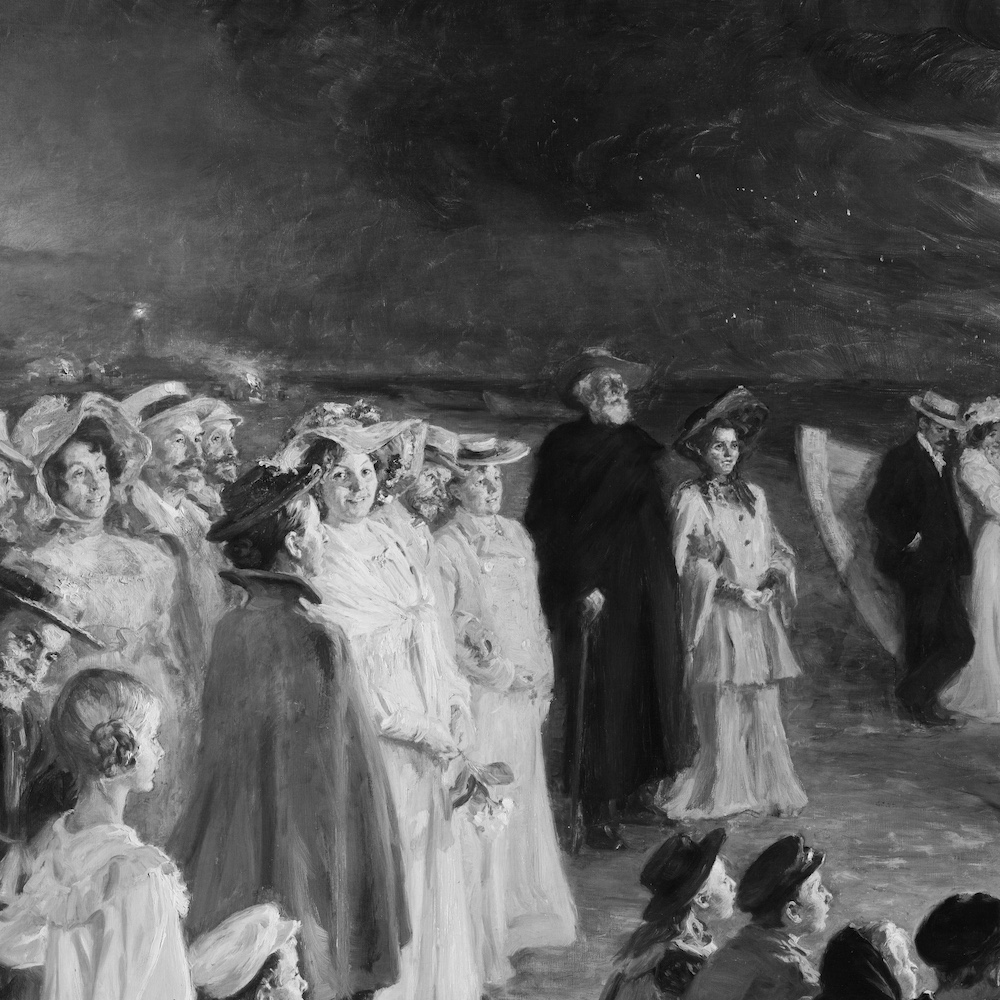
42.
Chanel Beads – Your Day Will Come
[Jagjaguwar]
Remember scenes? Plenty of backhanded praise greeted Chanel Beads as “Dimes Square” amplified, but just as many people pointed out how much like a movement its music sounds. Deliberately difficult to pin down sonically yet brimming with common reference points, Your Day Will Come is mostly defined by both its irreverance and its precious sincerity. It carries on the legacies of those early days in Montreal’s Arts & Crafts, Omaha’s Saddle Creek, and Athens’ Elephant Six as well as its prehistoric circles of R.E.M. and The B-52’s. Dry sophistication can’t always cope with passion and enthusiasm, but Chanel Beads finds that balance. – Steve Forstneger
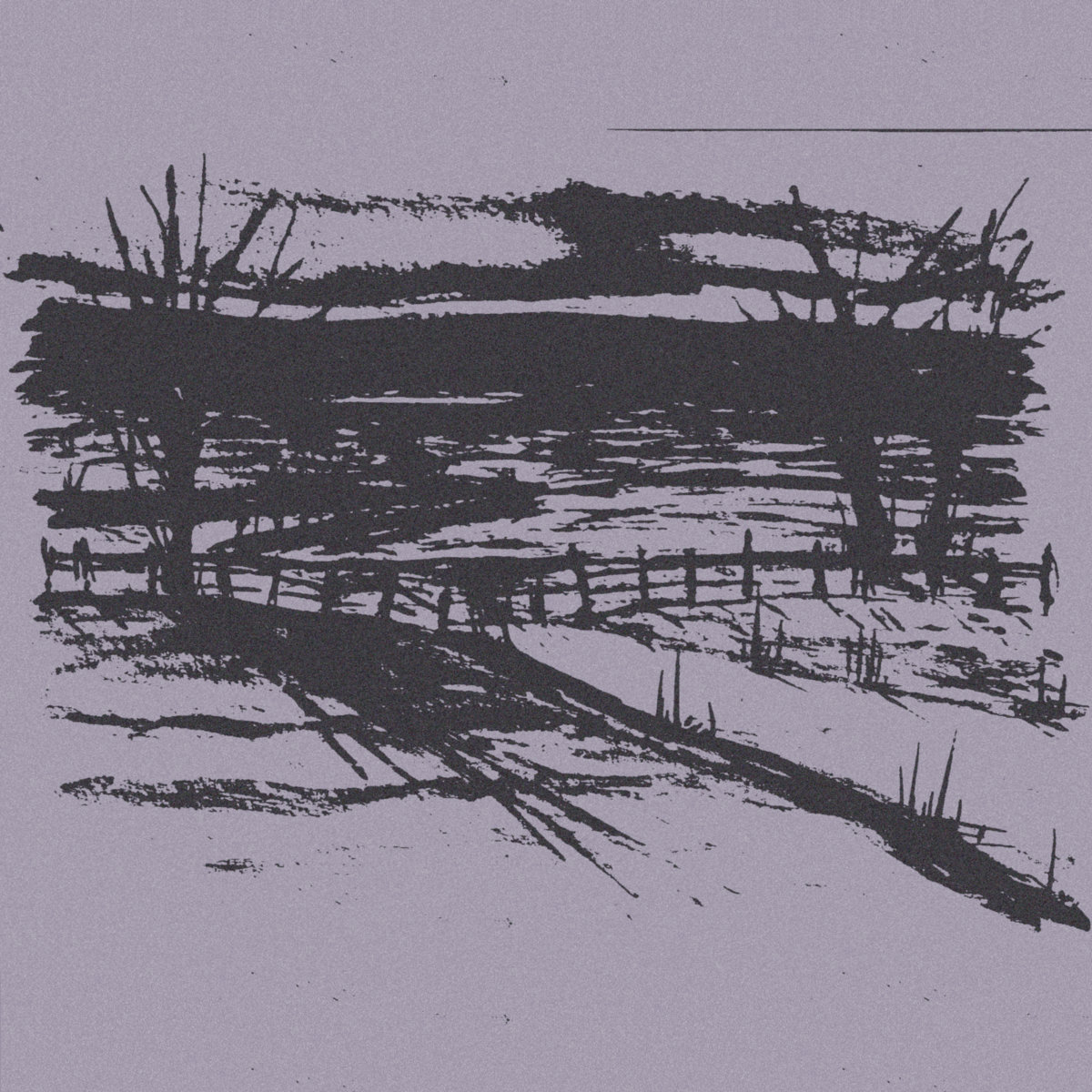
41.
drive your plow over the bones of the dead – tragedy as catharsis
[No Funeral]
If I had to distill the appeal of screamo and emoviolence down to one word it would have to be ‘catharsis’. It’s one of the most emotionally potent forms of artistic expression I can think of: musicians performing to the very edge of their capabilities, raising the intensity to unbearable levels, pushing vocals into the realm of pure, unfiltered pain, with next to zero concession to accessibility. And yet, it’s heavy music that makes you feel lighter, art that helps you bear the burden the world places on you day after day. You listen and you are purged, rendered new.
Vancouver three-piece, drive your plow over the bones of the dead (named after Nobel Prize winner Olga Tokarczuk’s darkly satirical murder mystery novel), understand this. Their debut LP, which follows their promising 2023 EP, is called tragedy as catharsis and it is 18 minutes and 19 seconds of sheer shrieking calamity; an absolute maelstrom of rage and despair.
DYPOTBOTD have overdelivered on the promise of that EP; this is easily one of the most accomplished emoviolence releases of the year, if not the decade. It flies by in a blur upon first listen, seemingly only stopping for breath for nanoseconds in between landing jab after hook after uppercut to your cerebral cortex. But it reveals more with every go around. Briefly glimpsed riffs land with the relieving force of a roaring chorus. Buried vocals like a man drowning in a tumultous, stormy sea and fighting with mortal desperation to be heard, become more discernible. New forms emerge from the chaos, the tragedy sharpens into focus, and the music soon hits you with blunt emotional force, made even more impactful when you parse the genuinely poetic lyrics which paint a near-gothic picture of violence, grief, madness and longing.
Vitally, the record is also a blast to listen to; the production hits hard, the songwriting is always engaging, and there are countless moments across the record that are simply jaw-dropping; whether it’s the sun-blotting immensity of the opener’s climax, the chugging post-metal and mathy intensity of “ritual symmetry”, the last 20 seconds of “arrangement”, or the unbridled cacophony of the album’s closing moments, there is simply so much here to savour. An instant classic of the genre. – Andy Johnston
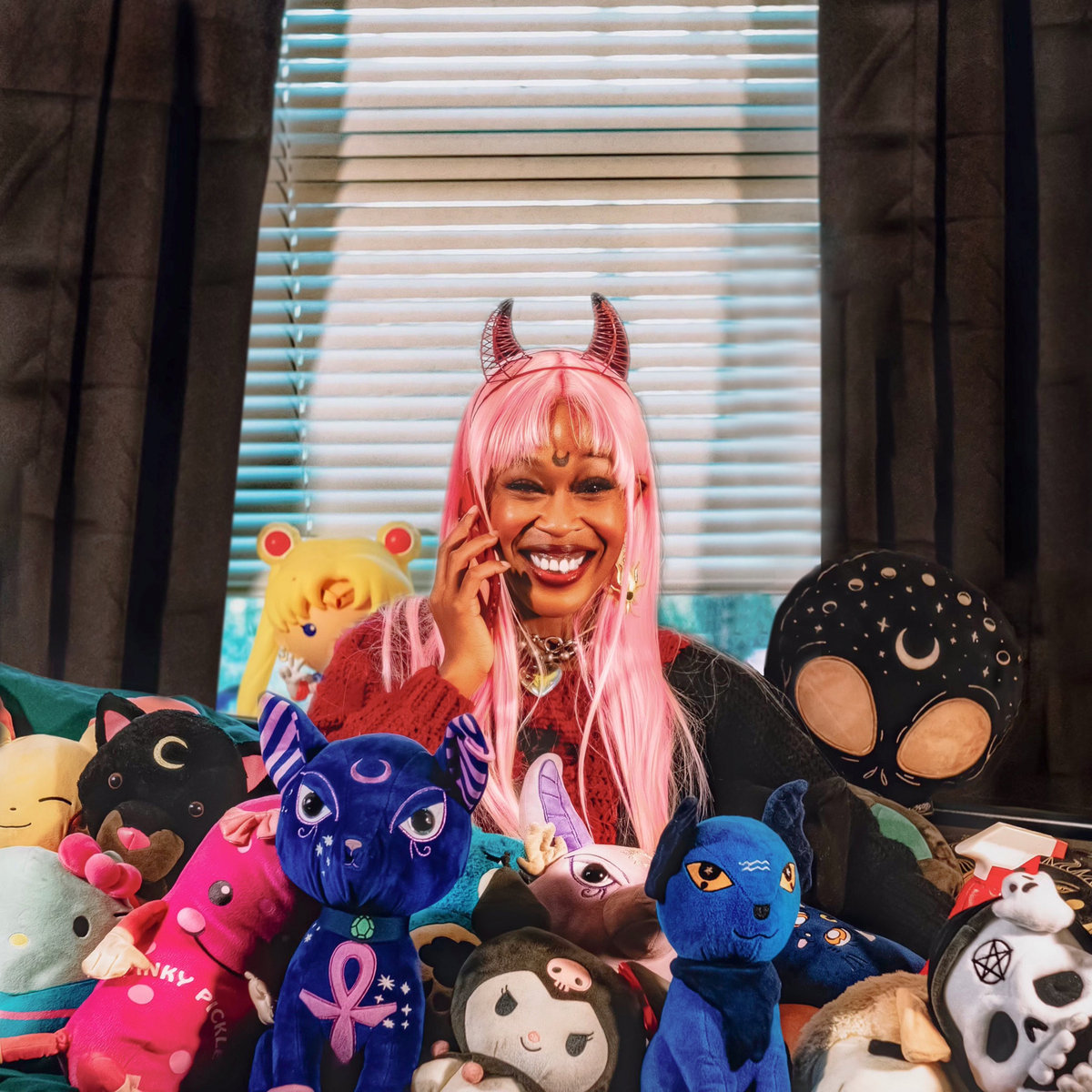
40.
bbymutha – sleep paralysis
[True Panther]
Plenty of rappers have songs about sex, but bbymutha makes them sound tame. “Tongue all in my ass / he’s a keeper”; “I hold grudges like my n*gga hold his dick when he beat”. Controlling the songs with complete confidence over some of the most impressive production of the year (peep the idm-adjacent “rich”), sleep paralysis tows the line between funny and scary, like many of the best horror movies do. Whether she’s creeping slowly through “mutha massacre” or rocking the absolute banger “piss!”, bbymutha has found her sound, a novel mix of dirty south bravado and sex magick horror. “It’s giving witch collecting crystals,” as she puts it. Bold and not-to-be-fucked-with, she stakes her claim as the rap game’s rawest succubus: “He wanna cut me like the lines on the dresser / When he look into my eyes and squeeze my thighs he see the devil.” – Ethan Reis
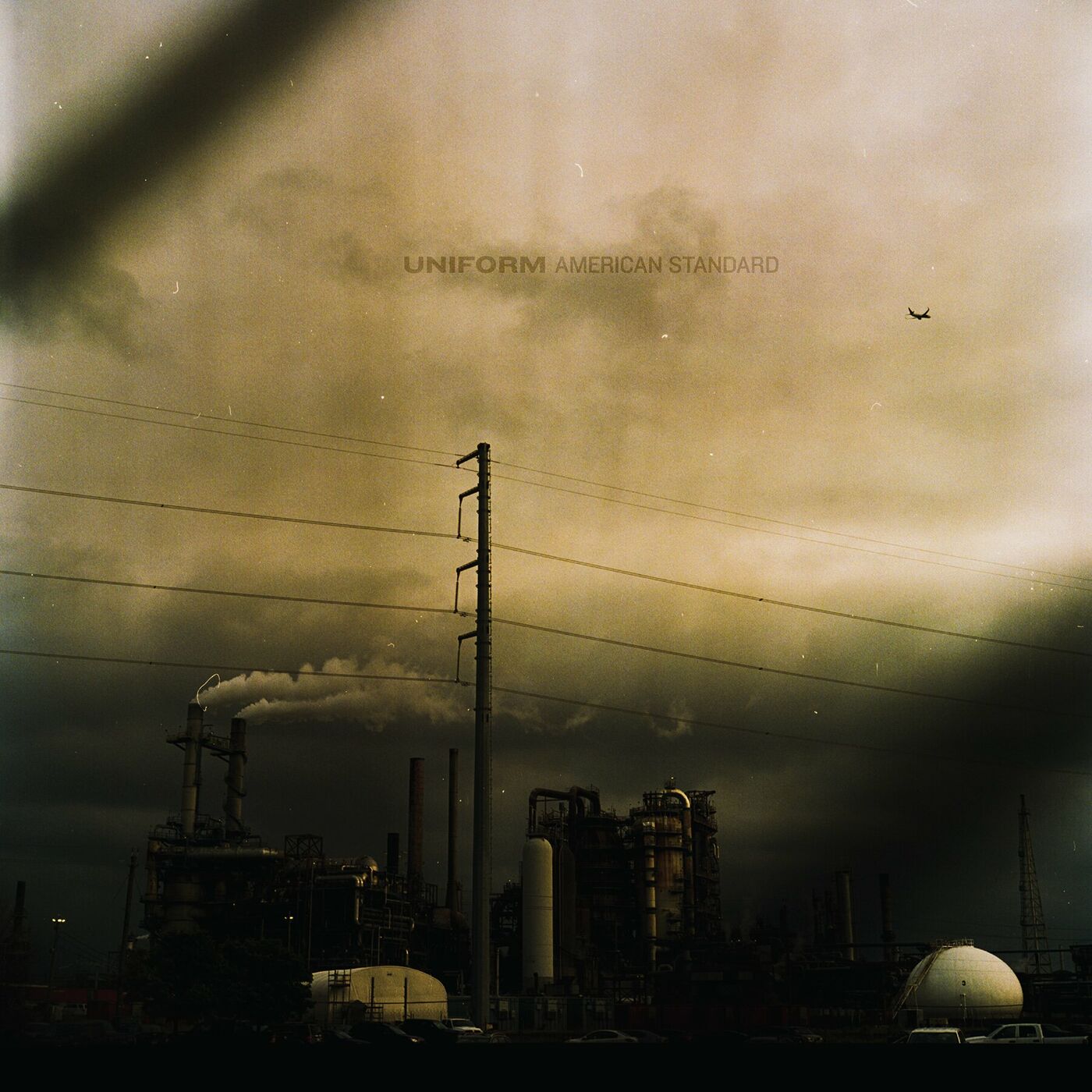
39.
Uniform – American Standard
[Sacred Bones]
There have been many examinations of the human body and the psychosis that we have around our appearance through the centuries in all art forms, but I don’t know if there has ever been any as bluntly effective as Uniform vocalist Michael Berdan simply screaming “A part of me / But it can’t be me … Oh god it can’t!!” into the void at the start of American Standard. Has there been anything more viscerally repellant than describing your flesh as “meat on my waist/arms/legs” with such guttural disgust? It’s just a glimpse into the bulimia that Berdan has suffered his whole life, and by god it’s horrific. When the roiling guitars kick into “American Standard”, it actually comes as a relief; a blanket of melody to distract from the acidic self-disgust being projected in the vocals. It’s only a buffer, though, and despite being a quite hypnotically beautiful one, the pungent waves of self-diminishment and dysmorphia pervade through it. “My throat is raaaaw!” he pronounces towards the end of the 21-minute epic – we can hear that rawness clearly, and it’s not just from screaming his guts out.
That’s just part one of this examination of what it’s like to live with the unhealthy and unrelenting “wish to be lithe as a sapling”. Second track “This Is Not A Prayer” is a more confrontational track, Uniform delivering helicopter-blade percussion and dive bombing guitars as Berdan challenges “And will you get up the nerve to tell me I look sick? / And will you get up the nerve to tell me you’re afraid?”
The perspective shifts slightly as we move into American Standard’s latter two tracks, Berdan examining what it’s like to be one of the people who has tried to care for him through this debilitating illness. It’s no softer, though, with “Clemency” grinding and crashing on colossal waves of putrid hardcore while he screams “You can’t change who you are” – a phrase that might have been spoken to him in empathy, but is like a knife to the gut in this setting. Things end up with “Permanent Embrace”, which is, unsurprisingly, not a song about a forgiving hug, but instead a car crash that is animated by Uniform’s combative and unrelenting playing.
A brave and bold album, American Standard is not for the faint of heart, but it was undoubtedly a lot harder to live through and make than it is to hear. Listening is the least that we can do for Berdan and other suffering similarly. – Rob Hakimian

38.
Magdalena Bay – Imaginal Disk
[Mom+Pop]
Magdalena Bay’s sophomore album Imaginal Disk expands on their hypnotically pleasant and occasionally unsettling phantasmagoria.
The twosome of Mica Tenenbaum and Matthew Lewin are undoubtedly solidifying themselves at the forefront of experimental pop – yet even that label feels rudimentary across such a smorgasbord of tunes. Dreamy and sinister like an eighties Jim Henson film, Magdalena Bay have created an album that is simultaneously human and alien which is enhanced by the lyrics and Mica’s versatile voice, perfectly encapsulating a being discovering the complexities of emotion and experience.
From the smooth eighties groover of “Killing Time” to the idiosyncratic “Tunnel Vision” that feels like a synth-rock stomper with cameos of nineties hip-hop, there is nothing predictable or expected on this album. Even when enjoying the sweeping beauty of tracks such as the space rock-adjacent “Watching T.V.”, the pair are not afraid to throw a sudden, stuttering drum beat to keep you alert.
Regardless of how many sudden left-turns this album takes, the beauty and immersion is never compromised. For those who yearn for pop music that is just, well, weird, conceptual, unfettered, full of heart and lacking pretention, it is time to transport to the odd universe that is Imaginal Disk. – JT Early
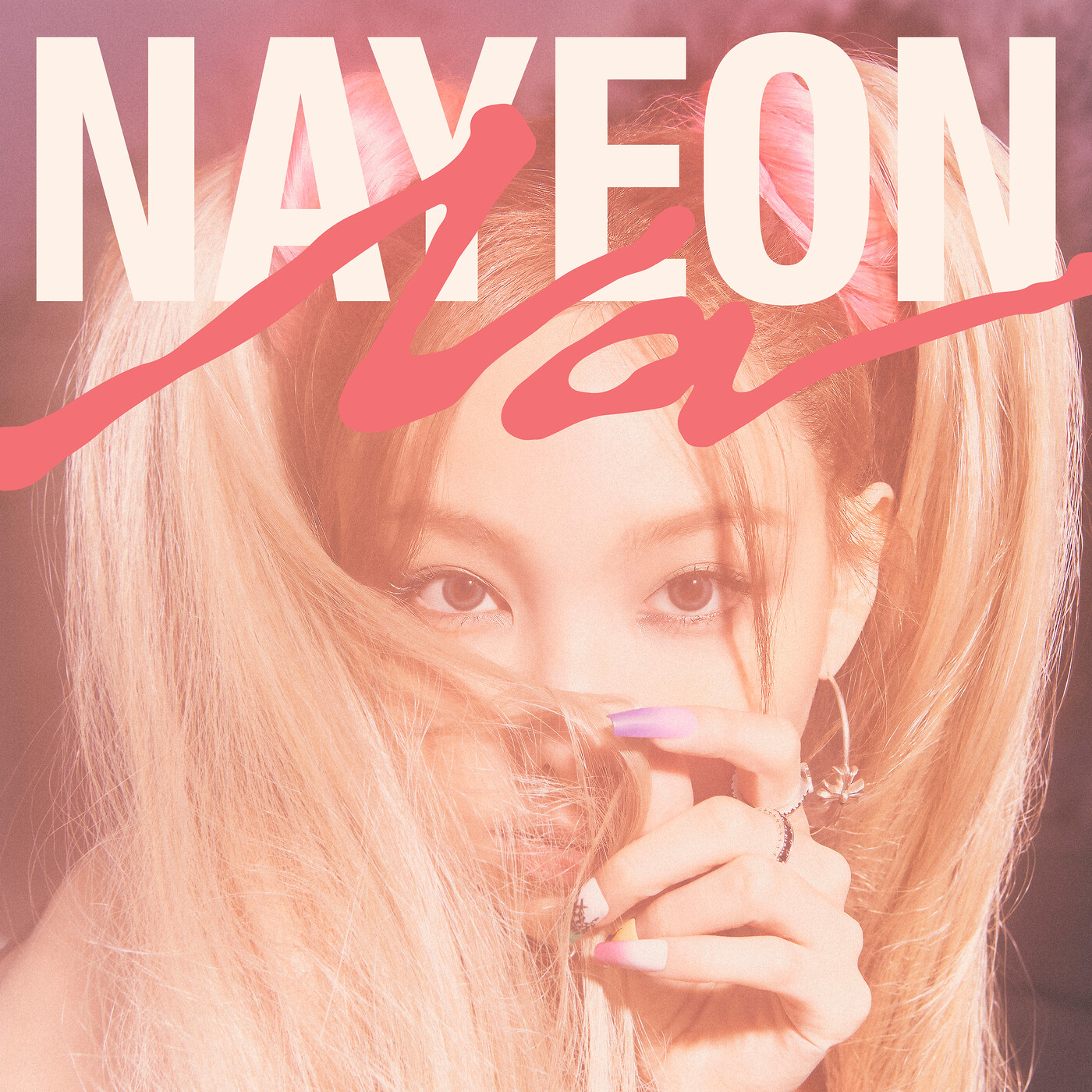
37.
NAYEON – NA
[JYP Entertainment]
Betwixt all the delirious fun, pop jams, and sincere sunshine, it’s been easy to sense TWICE pulling at the reins for a moment now. Hell, in this, their ninth active year – an age in which your average K-pop group would very likely already be split up, out of gas, or preparing to leave – the nine members of one of Korea’s signature girl groups were still going strong: embarking on their biggest worldwide tour to date, reaching their fourteenth mini-album, and linking up with Megan Thee Stallion for not one, but two collaborations.
Amidst it, the desire from the members to fully embrace their “grown woman” era was palpable. The loving “I Got You” was a strong step forward, and naturally TWICE have fully arrived on the shores they’ve been seeking via the confident seduction of “Strategy”, but it was Nayeon who made the boldest strides in 2024.
While so many solo releases from a member of a mega-popular larger group can, understandably, aim to do more of the same with less of the power, NA fully asserted an artist that can not only stand alone, but feels even more singular doing it. She leans her back fully into R&B, gliding nimbly through songs that drift between heartfelt and sweetly sultry, offering a release that carries the heft of an album despite wrapping up within 23 minutes, one which doesn’t sound at all out of place on a playlist alongside the likes of Tinashe, all while maintaining her distinctly Korean identity. – Chase McMullen
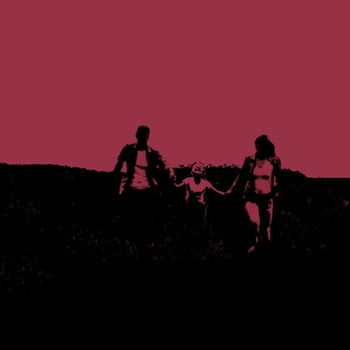
36.
meth. – SHAME
[Prosthetic Records]
SHAME, the new album from Chicago band meth., is aptly titled. Indeed, that corrosive sense of fundamental brokenness – not of being embarrassed or humiliated, but rather feeling essentially and irreparably damaged – pervades these harsh, corrosive, and riveting tracks.
Opener “Doubt” thrusts the listener into a disturbing cacophony, static guitars undergirded by propulsive drums. Quasi-progressive metal meets garage-y hardcore. Frontman Seb Alvarez sounds like he’s in solitary confinement and dying of thirst. “Compulsion” blends surprisingly distinct drum rolling and thrashing guitars, Alvarez playing a fallen angel who’s returned to earth for a pagan protest ritual.
“Cruelty” is built around janky guitars and Alvarez’s urgent shrieks and snarls. Taken separately, the elements that make up this track and SHAME as a whole are recognizable, yet in terms of a gestalt, meth. hit on new amalgams, hints of clangorous psychedelia, industrial drone, a sinister yet artsy brand of punk.
“I am the guilt that feeds you”, Alvarez laments on the title track, addressing the way in which self-loathing can fuel creativity, the artist propelled by a need for catharsis. Closing track “Blackmail” again combines the cacophonic, the droney, and the darkly melodic, the band climbing and descending instrumental lines, Alvarez offering his best howl, the moan and groan of the damned.
While meth. toe familiar audial lines, a notable musicality distinguishes the band from their peers. SHAME is a subtly eclectic project that still vividly and consistently conjures the realities of oppression and disconnection, the syndrome of loneliness and self-revilement, how the world betrays us, how we betray ourselves. – John Amen
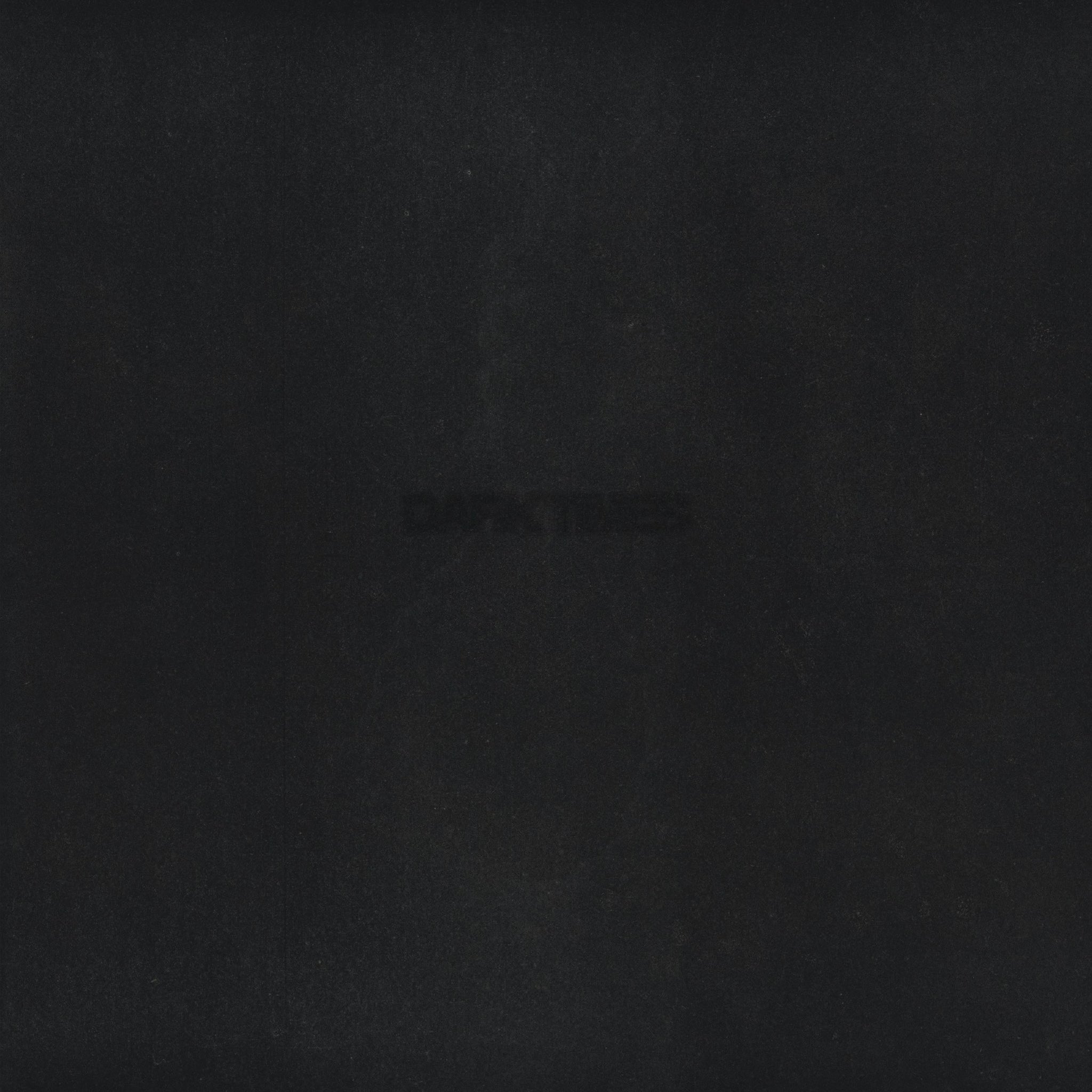
35.
Vince Staples – Dark Times
[Def Jam]
There’s few contemporary rappers whose despair has been as central to their work as Vince Staples. Each of his records observes the struggle from a genuinely modern angle – a society that claims race no longer matters within its structure, a world where poverty is redelegated to an afterthought. He’s grappled with Compton’s embodiment, Ramona Park, over the last couple of years – here, he resigns: “Dropped Big Fish, cuh been weak since”.
Yet, he’s recorded his most significant, elaborate and confident album since 2017. Dark Times has Staples return to the bouncy instrumentals that made him a household name in the first place, simultaneously never sacrificing any of his sharp socio-cultural melancholy.
Soulful and rich in psychedelic vibes, the record is typically Californian. Within this landscape, Staples recounts modernised narratives of black hood culture. There’s the summery “Justin”, where a romantic encounter ends with the girl lying to her surprise-visiting partner that Staples is her cousin. The dark “Nothing Matters” confronts the toils of modern romance with the sharp electric jazz sound more familiar from the UK than the US. “Children’s Song” has the tone of an Earl Sweatshirt track, as Staples questions the masculinity of men who put their ego over providing for their family. “Little Homies” is a nocturnal, club-adjacent hymn to the hustle lifestyle, while “Black&Blue” interrogates the senselessness of cyclical gang violence. Yes, Dark Times is, unambiguously, a love letter to the West Coast, but it also centres Staples as a generational storyteller. A sensitive memorial to the absurdity of his – and all Black – life experience, it’s as mature as it is memorable. – John Wohlmacher
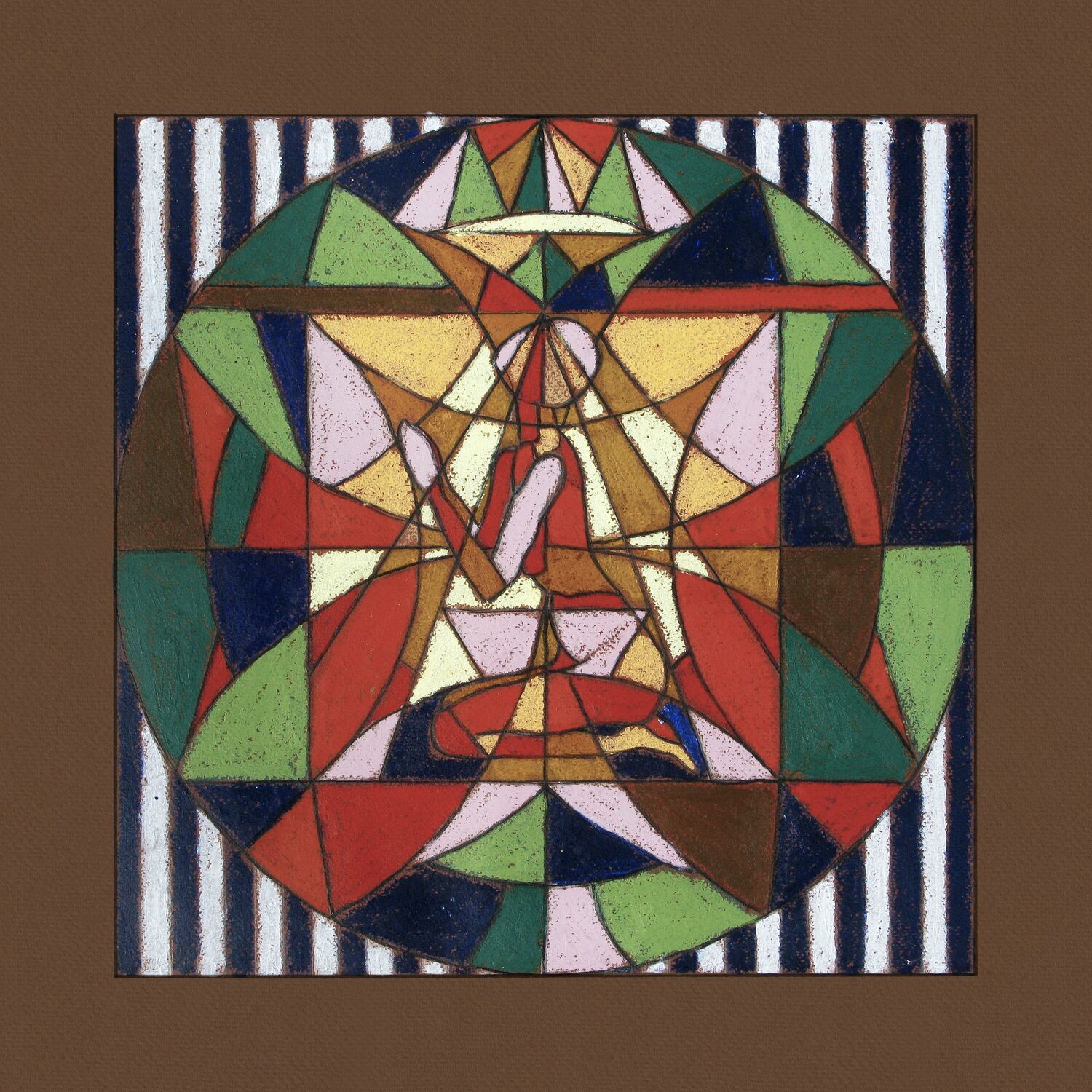
34.
Laura Marling – Patterns in Repeat
[Partisan/Chrysalis]
There’s hardly anything more percussive on Patterns In Repeat than a guitar pick striking gentle chords. When artists challenge us we think of abrasion and dynamics, of being gripped by the ears and having our heads shaken. Laura Marling dares her listener to hold steady while singing about love and family and domesticity while teetering on the brink of sentimentality. Patterns is the opposite of listening to a band on the edge of collapse, but rather the sound of cradling something delicate. “Caroline”, its Leonard Cohen-esque highestlight, lurks like Chekov’s gun – a snare crack that never arrives. – Steve Forstneger
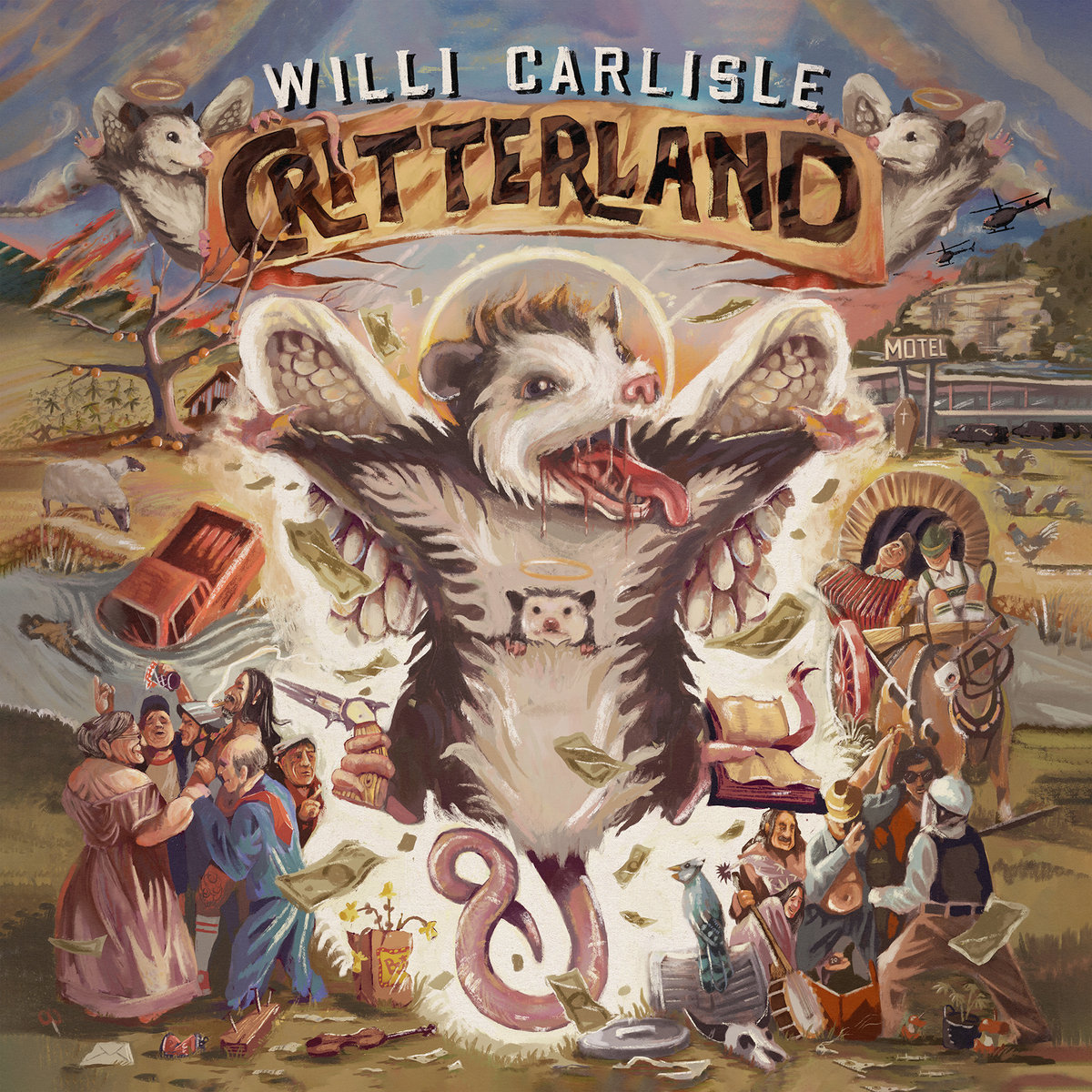
33.
Willi Carlisle – Critterland
[Signature Sounds]
Critterland is an honest-to-God country-folk masterpiece with an inescapable authenticity that will leave you catching your breath more times than you expect. Willi Carlisle confronts death, destruction, and despair head-on, uncovering glimpses of grace and solace in the natural world and the flawed humanity around him. He paints vivid portraits of lives teetering on the edge—struggling with addiction, loss, and love’s fragile promises—while holding space for the beauty that softens life’s harsher truths.
The raw, unkempt folk-country sound might feel familiar at first—deeply-rooted even—but its own emotional clarity and vulnerability woven through every note elevates Critterland into something extraordinary. Carlisle’s gravelly yet tender voice—whether murmuring quiet confessions and revelations or delivering impassioned pleas and epiphanies—carries immense weight, making every lyric feel both deeply personal and profoundly universal. In a genre often shaped by rugged bravado, Carlisle carves out a space for tenderness, hope, and a reckoning with the messiness of being human, which makes Critterland a place and canvas of solace, open to projection from anyone who has ever felt like an outsider. – Kyle Kohner
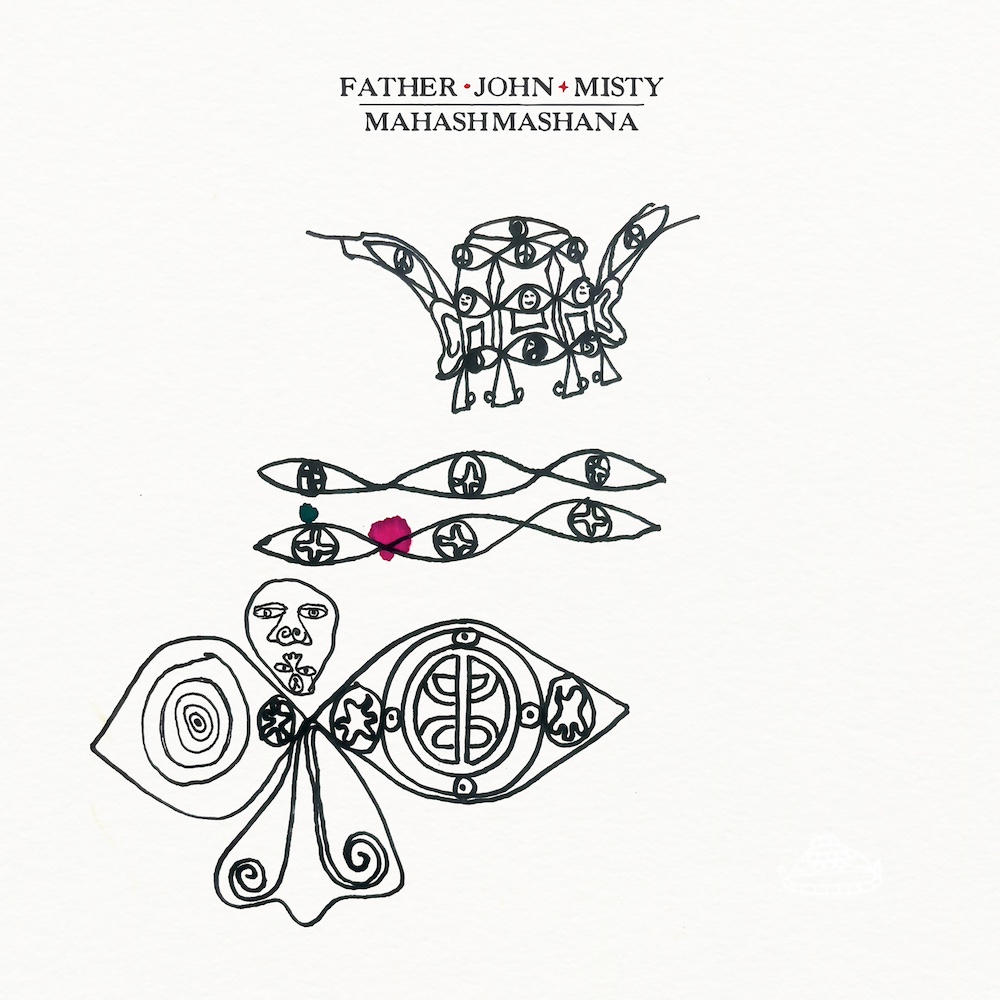
32.
Father John Misty – Mahashmashana
[Sub Pop/Bella Union]
At this point in his career, Father John Misty is just bemused by the apocalypse. He’s always known that time was finite, and that all this noise around us was just window dressing for stage sets scheduled for demolition. But he did occasionally rail against its demise, offering shouts into the darkness and piercing insight into the world’s (and our own) faults.
On Mahashmashana, he’s staring into the face of destruction and realizing that it no longer holds any control over him. The songwriting is as crisp and lean as it’s ever been. That doesn’t mean it’s skeletal. Most of the songs here reach out toward seven minutes and are dressed up in old-world orchestrations and a polished density that few artists could operate within without having it collapse in on itself. Standouts like “Screamland” and the title track are bruised and accepting of their final resting places, last acts of creation before the universe falls to ruin, and Father John Misty is kind enough to save us a seat in whatever comes next. – Joshua Pickard

31.
Vampire Weekend – Only God Was Above Us
[Columbia]
If dreams have their own uncanny logic, Ezra Koenig and company spend most of Only God Was Above Us admitting that our own world lacks any. Ours is a place where the cruel are redeemed as classical and the sins of past generations are shrugged off with apologies.
Vampire Weekend push back by offering up their own fever dream. Their latest album is one where plucky orchestrations soundtrack existential crises and foggy trip-hop engulfs someone who’s never seen a starry sky. It’s an album abound with self-references, where the piston-sharp “Ice Cream Piano” captures the earnest energy of their debut, and the loopy “Prada” calls back to their sprawling Father of the Bride. Yet, that Koenig starts the album singing “Fuck the world” and ends with “I hope you let it go” shows that even he can’t stay cynical for long. If there’s a god above us, the playfully masterful Vampire Weekend want to make them smile. – Carlo Thomas
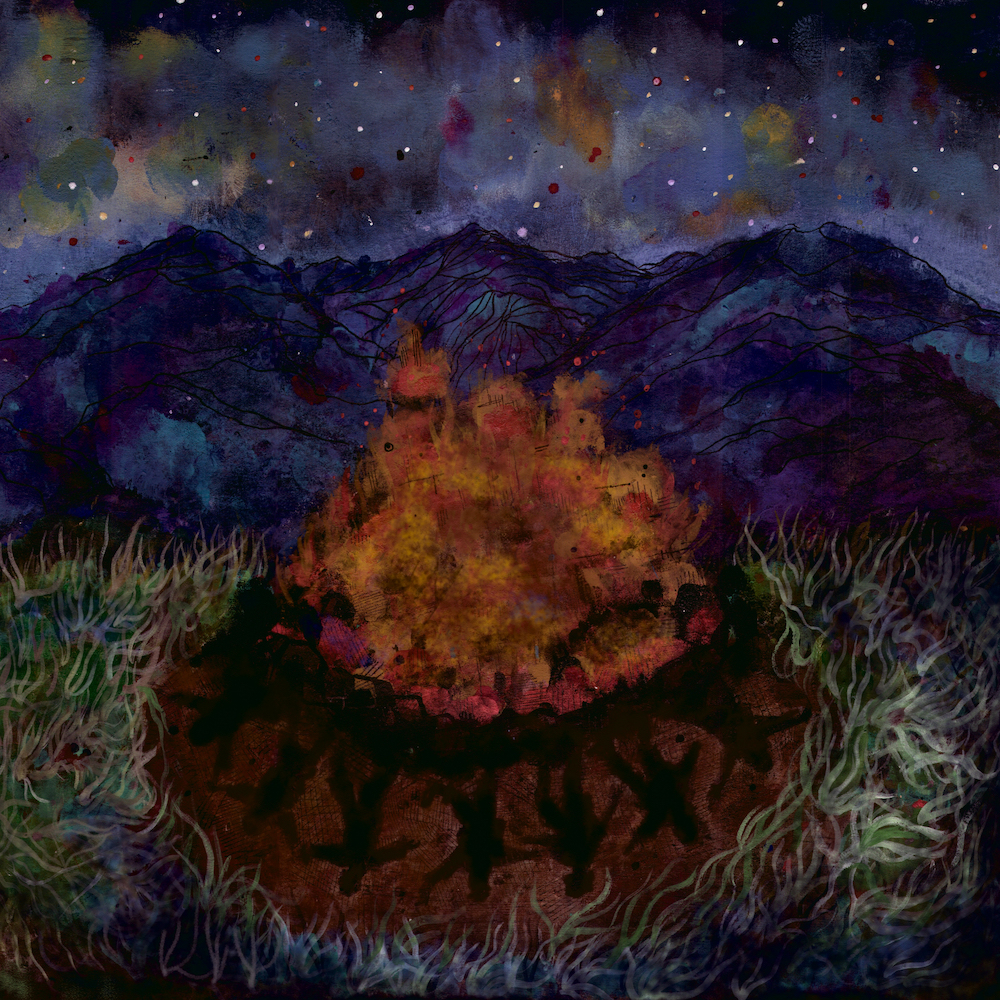
30.
Infant Island – Obsidian Wreath
[Secret Voice]
Self-proclaimed blackgaze screamo band Infant Island’s fourth studio album is a stunning, masterful voyage into the darker recesses of the human condition (this is very much a good thing, by the way). From the opening swirl of “Another Cycle” to the album’s pulsing closer “Vestygian” there’s a sense of life-affirming energy in amongst the glorious maelstrom of noise. Obsidian Wreath blends ferocious intensity with haunting, atmospheric passages, crafting a sound that’s both blistering and cerebral and constantly shifting. The sharp contrasts between chaos and restraint – dynamic shifts in pace, angular riffs, and raw, impassioned vocals – are executed with insane precision. The album feels like a journey through emotional extremes, each track a layered narrative that pulls you deeper into its world. Obsidian Wreath is at once punishing and cathartic, a masterstroke of tension and release that demands your full attention. Essential listening. – Todd Dedman
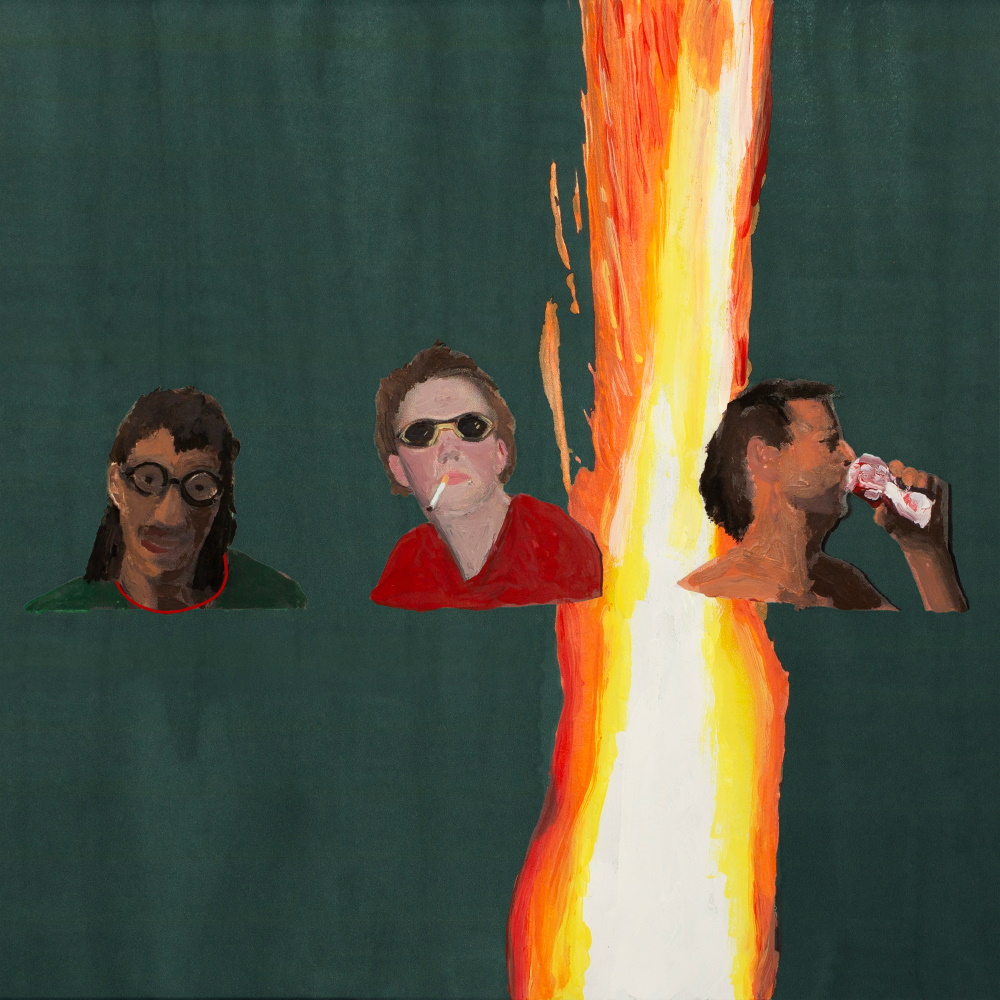
29.
MJ Lenderman – Manning Fireworks
[ANTI-]
MJ Lenderman’s indie rock stunner Manning Fireworks is a study of today’s crisis in masculinity. Lenderman’s tales are made vivid by whining pedal steels, a droopy clarinet, and at times the grungy guitar shred. He throws around tough guy language like “cum” and “puke” and raises his flag at the now-infamous Himbo Dome. Yet, we listen because we empathize with Lenderman’s characters—perhaps we know of some ourselves. We see them buy Lamborghinis that won’t ever keep their women from leaving. They think it’s cool to run over a doe and never look back.
Lenderman doesn’t let these dudes off the hook, but doesn’t scold them, either; on “Rip Torn,” his words give tough love while his gentle delivery comes off like a pat on the shoulder. On Manning Fireworks, Lenderman offers up a place of belonging for all those men on their aimless, lonesome duck walks. – Carlo Thomas

28.
St. Vincent – All Born Screaming
[Total Pleasure]
The front cover’s visual of Annie Clark – known as St. Vincent – mid-spontaneous combustion, limbs twisted to an uncomfortable angle, already heralded All Born Screaming (title notwithstanding) as a dark album.
Ditching the kitsch of her past few albums, Clark opts for a more nihilistic and transparent approach. Her guitars are crunchier and ominous, the atmosphere is darker and cloying, yet still maintains a sonic sense of twisted fun. On this album, the musician explores her own mental illness, disintegration of relationships, and an apocalyptic sense of dread for the world.
Whether she is creating a disturbing parasitic metaphor for trauma (“Flea”), the irreversible entropy of a world succumbing to violence (“The Power’s Out”), and the existential struggle of finding stability (“So Many Planets”), Clark is strikingly in-your-face. Never more so than on the snarling and angry “Broken Man” that finds Clark yearning for connection but simultaneously ripping into those who witness her vulnerability and hurt without empathy.
This album is a confrontation with Clark’s personal demons and the world darkening around her into some sort of hell. The symbolism of spontaneous combustion, alongside Clark’s seemingly defeated expression, sends a chilling a message: although we are all born screaming, there is a certain bravery in quietly accepting fate. – JT Early

27.
Clairo – Charm
[Clairo]
Diverting slightly from her tried and true bedroom-pop sound, Clairo took on a more assertive sound with Charm. While it continues her dabbling with soft, indie elements, it demonstrates a new branch in Clairo’s capability as an artist. With its mellow 70s flair augmented by the whimsy-filled instrumentation, Clairo captures a new sensuality that strikes a wonderfully groovy chord. The album is wholly cohesive as it ebbs and flows between haunting melodies and cadences of pure joy and bliss. Between songs like “Juna” and “Sexy to Someone”, which are full of sparkles and lush in the audible delight they bring listeners, to songs like “Echo” and “Pier 4”, which are utterly entrancing in their delivery and lyrically introspective. Charm is simply irresistible. – Brianna Corrine
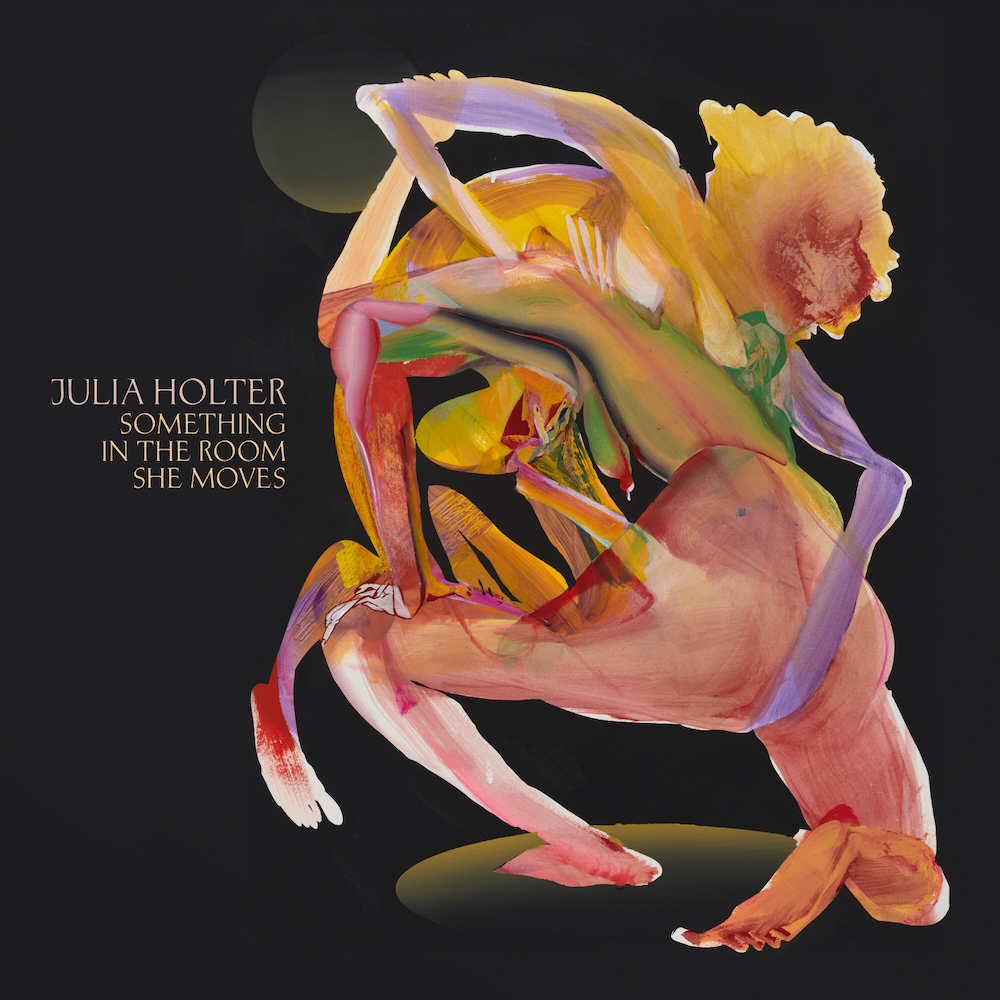
26.
Julia Holter – Something In The Room She Moves
[Domino]
Time marches forward, people change, trends come and go, but Julia Holter’s music still gives me that same feeling as when I first heard Ekstasis in 2012: like being engulfed in pure magic. Holter is so deep into her own thing – how do you even start to describe “Sun Girl”? Dreamspace tropicalia? It’s just the first of 10 tracks on Something in the Room She Moves, a record that highlights Julia Holter’s strengths as a composer, vocalist, and innovator.
Though it’s existed for months, corners of this album continue to reveal themselves. Nothing strikes me quite like the title track, which grows slowly into something ineffably beautiful. When BPM’s Jeremy J. Fisette had Holter on his podcast earlier this year, he asked her what she was trying to explore on this song. Her response? “To be honest, I think I’m still figuring it out…” – Ethan Reis

25.
Beth Gibbons – Lives Outgrown
[Domino]
It’s shattering to understand that we receive some masterpieces only because of the harrowing defeat of death. Tonight’s the Night, Blackstar, Songs of a Lost World… the entries cut like a razor, draining the light from rooms, the glow from eyes. When Beth Gibbons announced her return, outside of Portishead, few could have foreseen how heavy the burden of the coming album was.
Filtered through the sinister palette of Renaissance paintings, it carries the same hollow tone that beset most albums of 1969: the closing of an era, the death of naiveté and end of dreams. It’s beset by melancholia, to a point where it often dips into neofolk, that sinister genre of twilight existences and apocalyptic sorrow that is dismissed to the outer reaches of societal acknowledgement.
Its sonic progenitors, from Ennio Morricone to Scott Walker, are evident, at times donating an especially macabre tone in their angular pathos – such as on the masterpiece “Lost Changes”. For other songs – such as “Reaching Out”, “Beyond the Sun” and “Rewind” – Gibbons’ voice is met by tribal drumming, a gothic interpretation of Krautrock influences. Lives Outgrown finally removes the sorrow on the pastoral “Whispering Love”, but it can never quite cure its misery, only recover broken shards. There’s no easy answers in this album, merely a stoic understanding of cycles – the acceptance of slow decay and ageing. It’s the kind of statement that makes all others unnecessary, the moment where an artist creates out of necessity instead of hubris or euphoria. A truly singular work. – John Wohlmacher
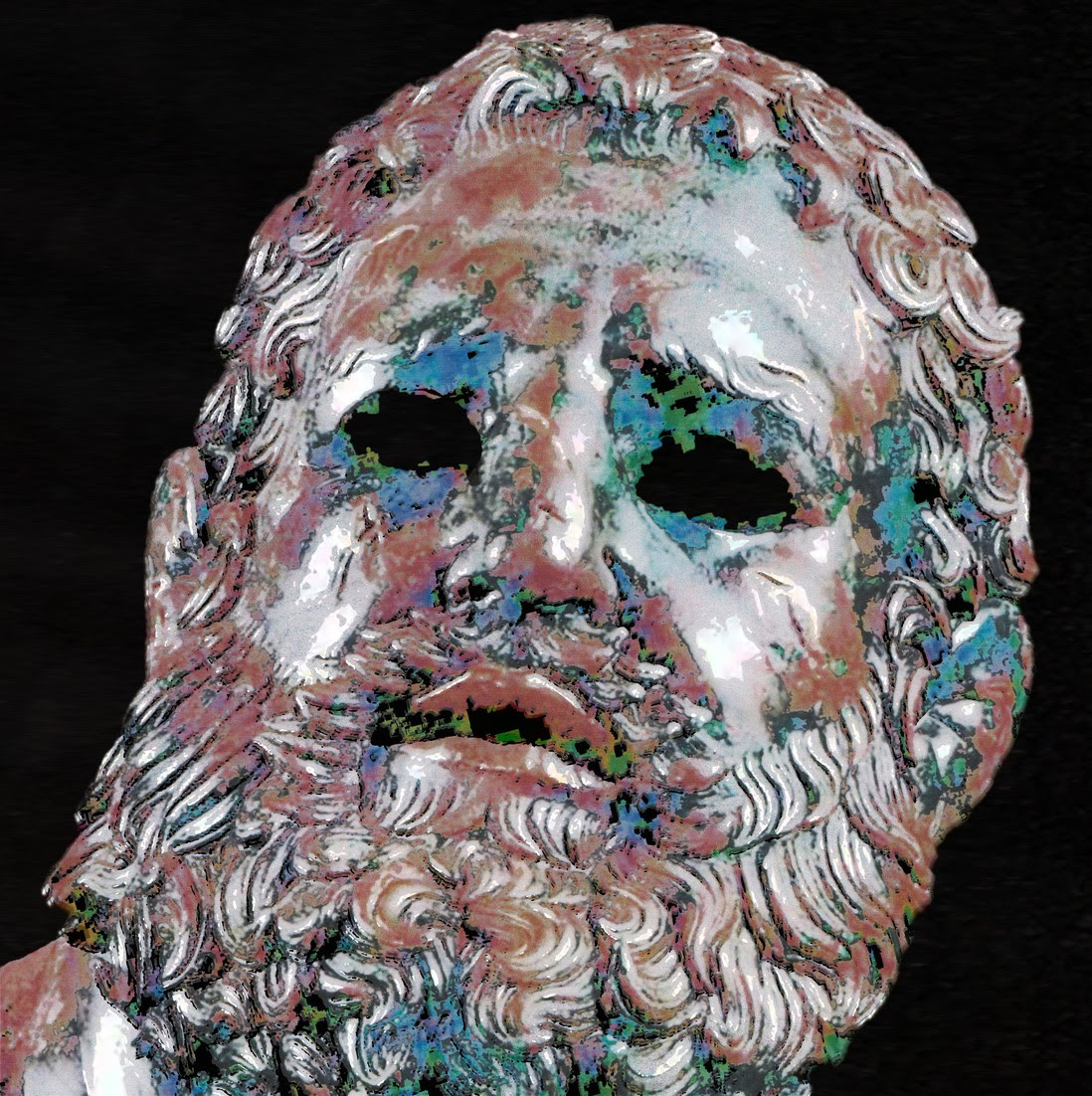
24.
Foxing – Foxing
[Grand Paradise]
Anniversaries are times not just of celebration but of reevaluation. Last year, Foxing marked the 10-year anniversary of their debut LP, The Albatross, by going on a special tour with fellow 4th wave emo heavyweights The Hotelier, who were celebrating a decade of their critical darling of an LP, Home, Like No Place Is There. According to a recent interview with Stereogum, the experience of revisiting their first album was a bit of a mixed bag for Foxing, bringing up difficult memories and feelings whilst throwing the experience of the previous decade into stark relief.
A lot can happen in 10 years, and it would be fair to say that a lot has happened to Foxing. They’ve seen a half-dozen band members come and go (although the core founding trio of Conor Murphy, Erik Hudson and Jon Hellwig has stood firm, joined on this record by new permanent bassist, Brett Torrence); they’ve also reinvented themselves several times across four full-length releases. The jump from the so-earnest-it-hurts, twinkly chamber-rock emo of The Albatross to the the more expansively post-rock-indebted Dealer was relatively inconsequential, but 2018’s Nearer My God represented a seismic shift, a bold reinvention for a band that was in danger of becoming terminally predictable. Tasteful indie rock arrangements, peppered with arpeggiated guitars and stirring crescendos, gave way to anything-goes genre experimentations. Has any opening track in recent memory done a better job of wiping the slate clean than “Grand Paradise”? It’s no small wonder the band’s label is named after it.
This was the new Foxing, willing to take risks, to reach for those huge pop choruses, or to indulge in nine-minute exercises in ambient atmospherics. Three years later, they followed it up with Draw Down the Moon, which saw them move even further away from their staid, emo roots with ambitions seemingly set towards bigger stages and bigger crowds; their sound evoking the bright and bold, synth-heavy grandiosity of 2010s indie festival mainstays like Passion Pit or Foals.
Now, three years removed and with that 10th anniversary in the rearview, it’s clear that Foxing have undergone a self-reckoning. Their latest album is self-titled, implying that it represents the band’s truest version of itself. Not only that, but for the first time, a Foxing record has been entirely self-produced, self-recorded and self-released. Unbeholden to label pressures and demands, or the guiding hand of a big-name producer, Foxing went full DIY. There’s more than a whiff of an Us Vs The World mentality at play here; the unattended press conference/performance art piece music video for eight-minute lead single, “Greyhound” positioned them as weary underdogs met with silent industry indifference.
With the abrasive sounds adopted across the record, a clear attempt has been made to shake loose some of the perceptions of them created by the crowd-pleasing, day-glo synth-pop elements of Draw Down The Moon. Listening to the 10 Year Anniversary covers album of The Albatross, it’s tempting to think that the band got to see how much more impactful their songs would sound when played with the chaotic, blown-out, live-wire energy of a screamo-adjacent act like Home Is Where and came away inspired. On Foxing, for the first time, screamed vocals courtesy of guitarist/producer Eric Hudson feature prominently, providing thrilling contrast to Murphy’s elastic cleans, whilst the recording revels in imperfections: guitars, bass, drums and synths get blown out, pushed far into the red, deliberately clipping and distorting, making it sound like the master tapes are about to get chewed up and melted in the machine. It’s an album about a band and the people in it being on the brink of mental and physical collapse, so it makes perfect sense that it sounds desperate and wild and like it’s falling apart in real time. From the Radiohead-by-way-of-The-Caretaker of the album’s opener, to the Song To Drive Into Oncoming Traffic To energy of “Hell 99”, to the cracked disco ball of Lynchian sadness that is “Greyhound”, not to mention everything else on this desperately sad yet thrillingly cathartic album, Foxing have pulled together through fractious adversity to release their strongest LP so far, and their most relatable and moving.
Throughout, Murphy’s lyrics describe a life beset by exhaustion, disappointment, low self-esteem, and disassociation; he likens being a part of Foxing to being in a dream that’s being described to him by a friend but he has no interest in hearing. At the climax of another song he wails, “I’m mediocre, and there’s nothing worse.” On ‘Greyhound’ he ponders, despairingly: “I’ve been feeling like / I can’t come up for air / For these last ten years / What’s wrong with me? / What’s wrong with us?”
A lot can happen in 10 years. We’re not the same at the end of a chunk of time like that. This year, my eldest child turned 10. It led to a lot of celebration, of course, but to self-reflection as well. It made this album hit hard; so hard that I ducked out of submitting a review at time of release, which is why I’ve gone long-form on what should have been a snappy blurb. For that, I may owe Rob the editor and you the reader an apology, but I also feel I owe it to the band to do their latest record justice, because despite it being their most self-doubting, most self-eviscerating album, it’s undeniable that Foxing have reached their highest creative peak so far, and it points to a very exciting next 10 years to come. – Andy Johnston
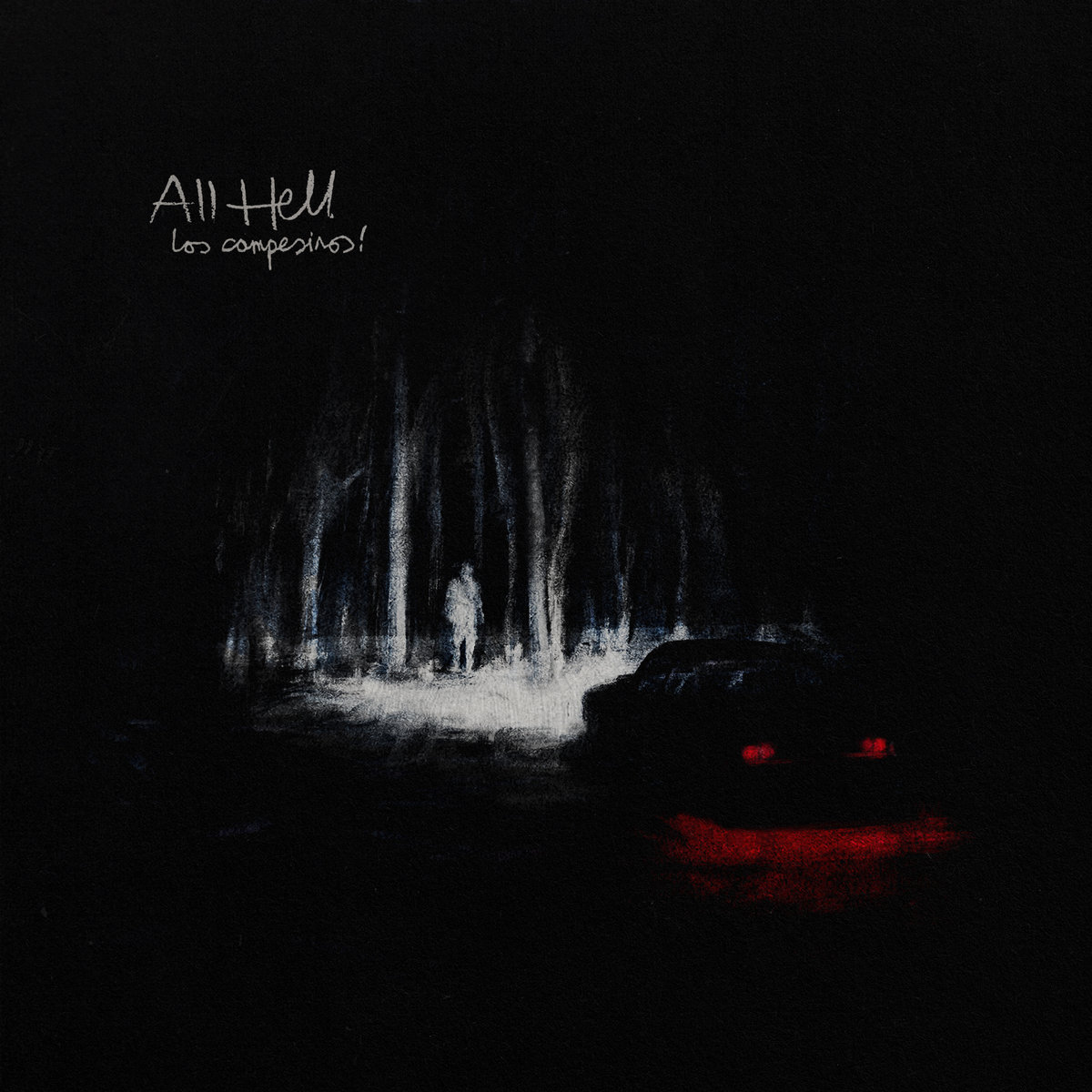
23.
Los Campesinos! – All Hell
[Heart Swells]
It took seven years for the brash indie pop punkers Los Campesinos! to follow up their 2017 record Sick Scenes, but it was certainly worth the wait. Not only is All Hell their first fully self-produced album, it’s also their best yet, with their strongest crop of songs, sharpest performances, and boldest production. A band like Los Campesinos! would probably balk at the descriptor “most mature album yet,” but it really is. Not that it’s a slog because of it — Gareth Paisey is not suddenly writing 10 morose acoustic ballads about loss or anything. (That being said: I think they could only, at this point in their lives, have written a closer as pretty, touching, and soft as “Adult Acne Stigmata”.) Instead, All Hell is vibrant, alive, moving, catchy, epic, and intricately detailed, all while retaining the band’s DIY attitude and no-fucks-given ethos. And Gareth maintains his acid sense of humor and rhyme, which cozies right up to his heart-stinging one-liners. The band lovingly refers to their work as “sleeper hits for weeping dipshits” on their website, but this time the hits (and the weeping!) come just a little bit harder. – Jeremy J. Fisette
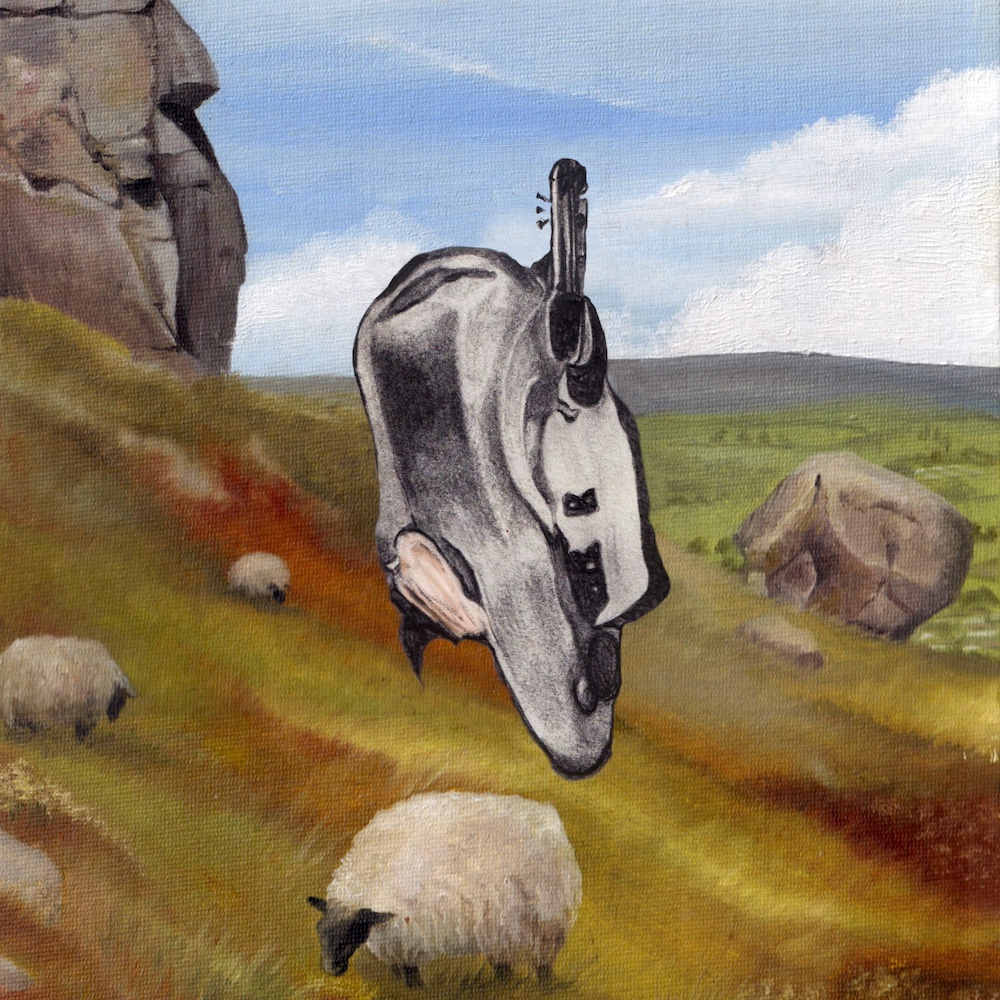
22.
English Teacher – This Could Be Texas
[Island]
With their full-length debut This Could Be Texas, English Teacher craft a multifaceted brand of post-punk. On “Albatross”, for example, Lily Fontaine’s vocal is accented by tinkly pianos and spry drums. With “Broken Biscuits”, on the other hand, Fontaine riffs on Dylan’s “Everything Is Broken”, compiling a catalog of ruptures (“broken phone”, “broken town”, etc.). The band, meanwhile, move between laidback accents and in-your-face rhythmic forays.
On “I’m Not Crying, You’re Crying”, the band pivot from austere backdrops to a heavier, guitar-led soundscape. Fontaine alternates between flatlined verses and volatile choruses. “Not Everybody Gets to Go to Space” speaks to the inequalities inherent to western capitalism. The band unfurl a diaphanous mix, lurching and recoiling. The bass-heavy “R&B” stands as Fontaine’s take on the dissonance of art being created for personal catharsis yet released with commercial aspirations. The band offer their most dynamic interplays, transitioning from staccato rhythms to stretched-out atmospherics.
While much of This Could Be Texas works with the tension between intimacy and distance, striking a balance between drawing a listener in and keeping them at bay, “Best Tears of Your Life” spotlights Fontaine at her least guarded and most pop-conventional, bringing to mind Charly Bliss’s Eva Hendricks. Ditto “Blister My Paint”, which features Fontaine as she laments a break-up, plunging into palpable grief. In this way, English Teacher demonstrate their eclecticism, the band notably versatile, Fontaine reveling in her emotional range and lyrical acumen. – John Amen
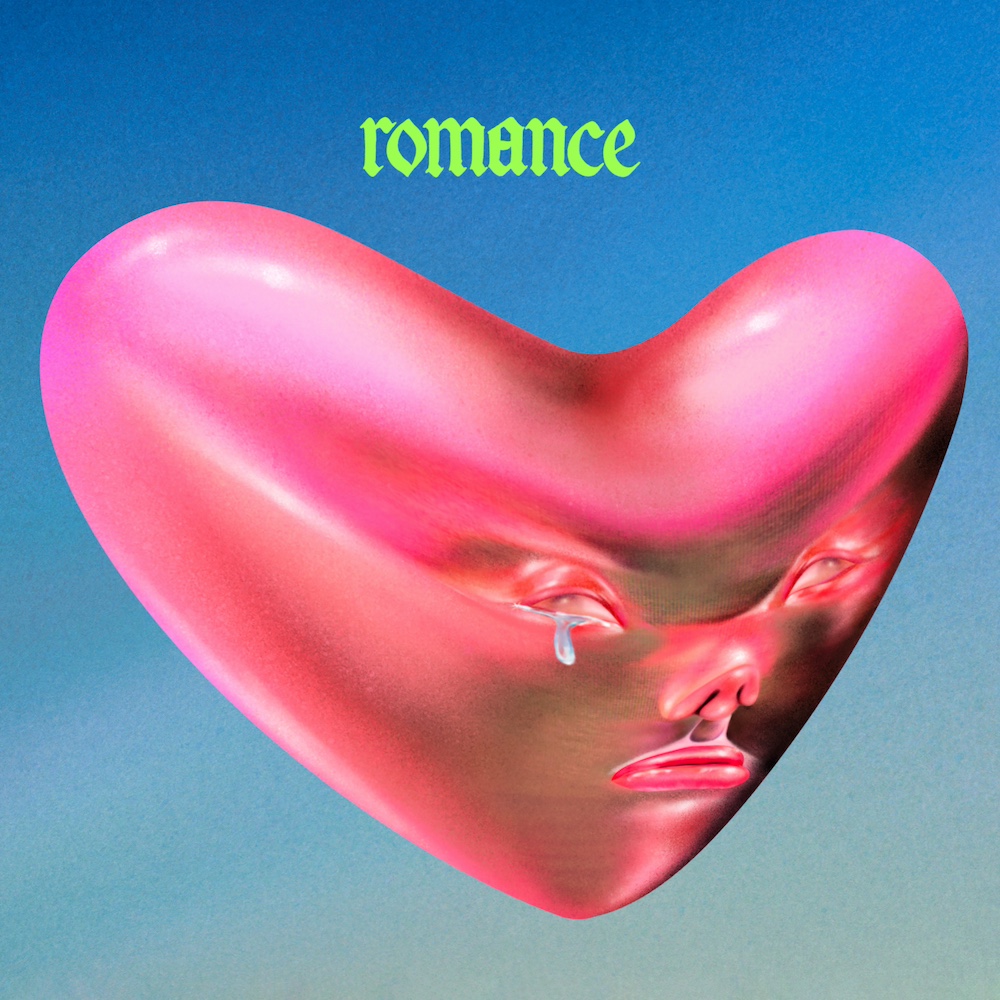
21.
Fontaines D.C. – Romance
[XL]
What is there to say about Fontaines D.C.’s Romance other than that it is quite possibly one of the most striking albums to have been produced this year? With “Maybe romance is a place” as one of the opening lines of the work, the mood is immediately set with unabashed confidence. Intricate lyrics that perfectly capture moments, emotions, and ideas blend with a rich combination of strings and percussion that build an atmosphere rife with gloom and hope. The album is gritty and untouchable. It hits hard on all fronts, exercising a deep understanding of all the sides to making an album that is cohesive while maintaining an air of mystery and excitement. Proving for the fourth time that they are creative geniuses who know exactly what they are doing, this is Romance by Fontaines D.C.. And if we’ve decided that Romance is a place where I can set up shop and live, count me in. – Brianna Corrine
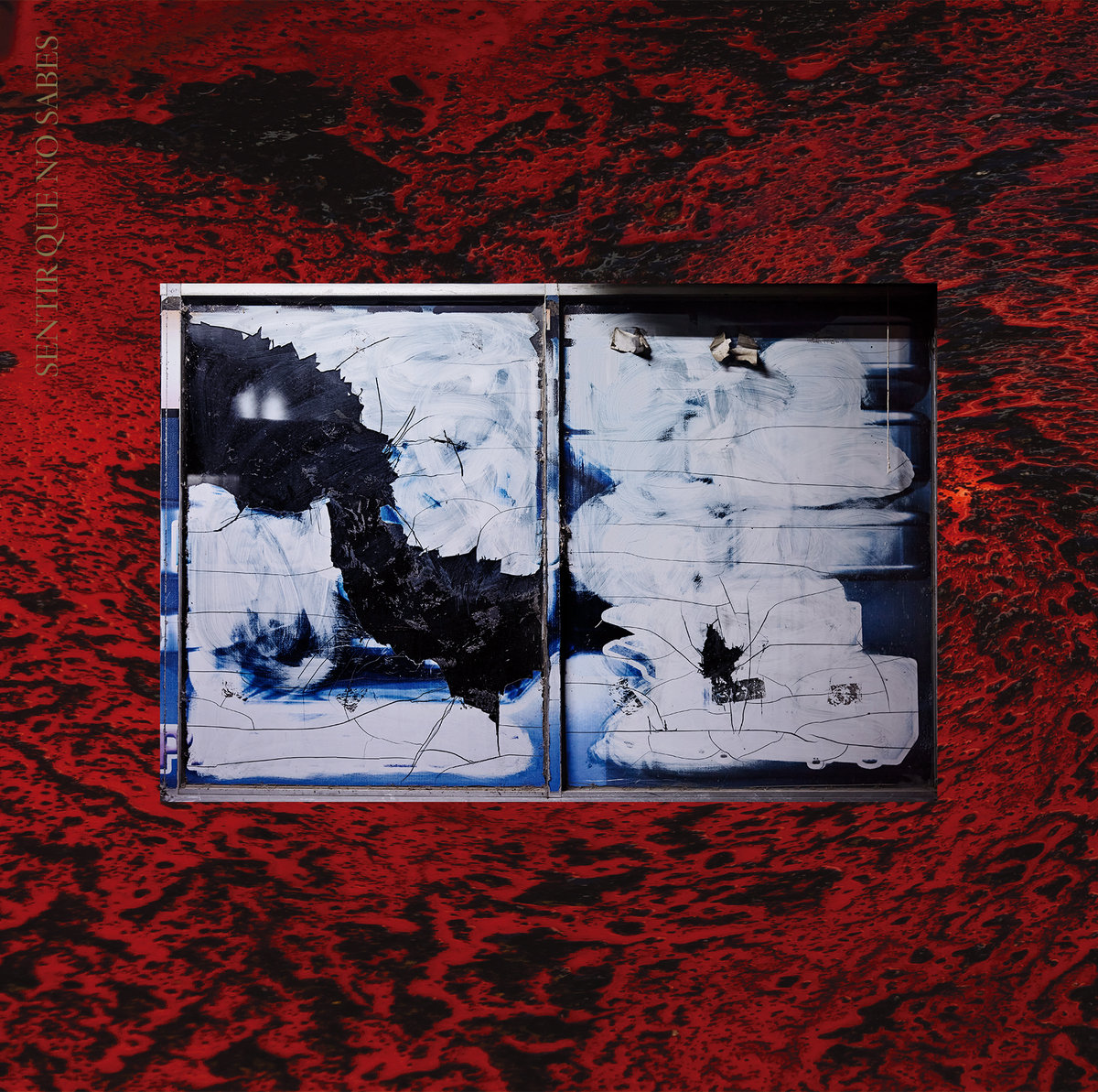
20.
Mabe Fratti – Sentir Que No Sabes
[Unheard of Hope]
Mabe Fratti reckons with the tensile strength of sound on her latest album, Sentir Que No Sabes, offering pop-inflected dissonance filtered through vast accumulations of tension and relief. The kaleidoscopic fractals of her previous work give way slowly to a mutated form and function, each track a small universe born and decaying in a matter of minutes, places of self-reflection that dissolve into a larger pool of liquid memory and identity. Cello, horns and various bits of unidentifiable percussion are melted down, recast and refined in the fire of her creativity. Everything has odd angles; nothing fits perfectly. But that’s exactly why Sentir Que No Sabes is one of the most engaging and captivating albums in recent memory. It refuses to adhere to conventional standards of beauty (and it is a beautiful record) and accepts that even the parts of ourselves we tend to shy away from can be sources of overwhelming light. – Joshua Pickard
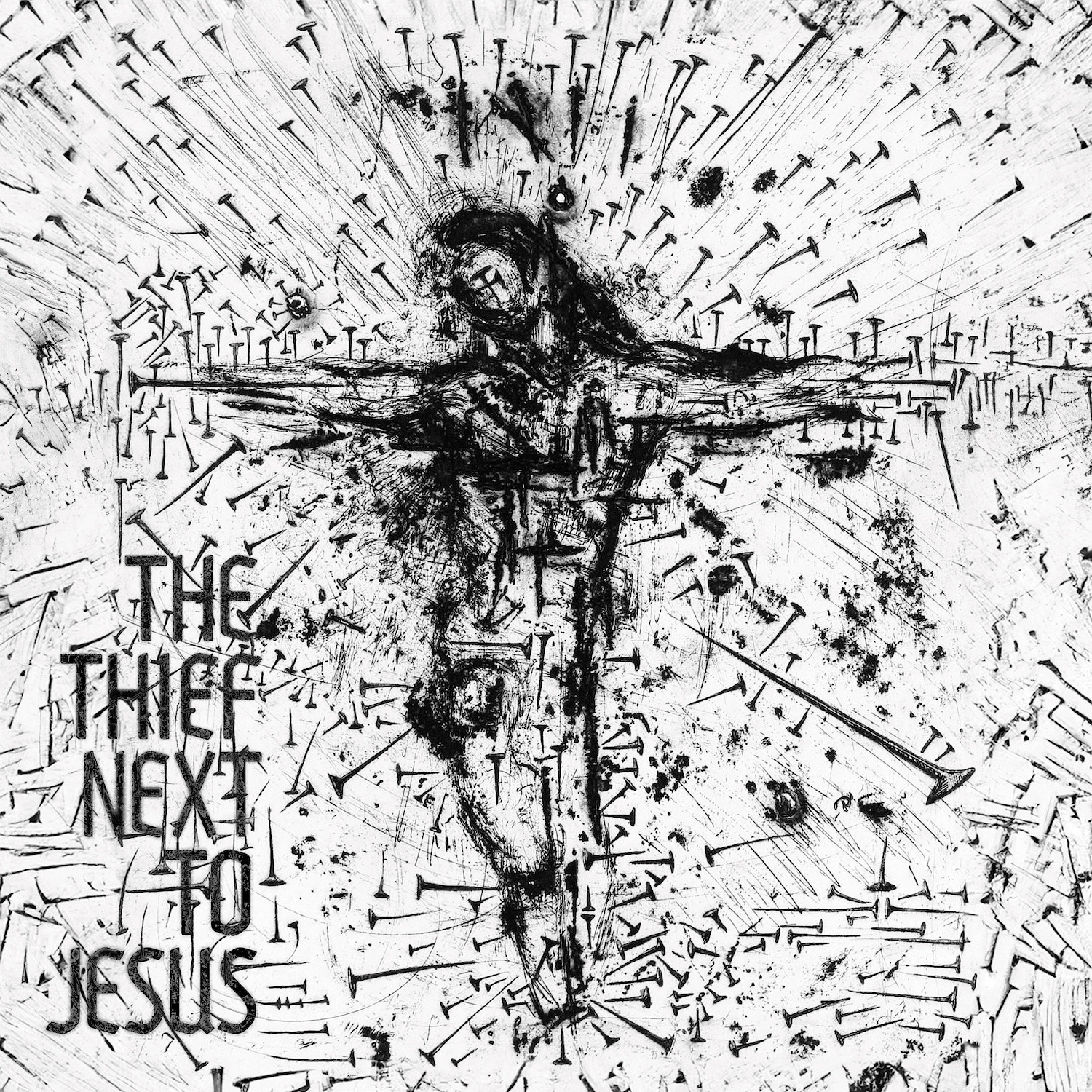
19.
Ka – The Thief Next To Jesus
[Self-released]
It hurts that this is where we are. In most ways, Ka was as different as it comes from the flamboyance of MF DOOM, but he was every bit as visionary and idiosyncratic: a truly singular presence in hip hop who was every bit as deserving of cult canonization. Patiently, calmly, and – above all – modestly toiling away since his debut in 2008, Ka built a loyal fanbase out of sheer hard work and word of mouth. For those who care, his humble legend is already emblazoned, so there’s not much need to recount it here.
I never imagined that The Thief Next to Jesus would prove to be his swan song as I devoured it in August, but it immediately stood out as his most hyper-focused, conceptually refined work since Honor Killed the Samurai. Those calling it his “Christian” album baffled me. Where Samurai deconstructed the notion of honor, Thief pieces apart religion and, specifically, Catholicism, and its impact on a people who were taken from their motherland and placed within an environment guided by a faith that was not their own. The eye with which he regards it here, while perhaps spiritual, is always critical. A searing, unblinking, and boldly reflective final testament from an all time great. – Chase McMullen

18.
Arooj Aftab – Night Rein
[Verve]
On her newest album, Night Reign, Brooklyn-based artist Arooj Aftab really revealed her true power. Its predecessor — 2021’s excellent Vulture Prince — catapulted her blend of new age, jazz, minimalism, and myriad other stylings into the limelight, earning her a Grammy for Best Global Music Performance for “Mohabbat”, making her the first Pakistani artist ever to win one.
Now, three years on, Night Reign solidifies her prowess. Weaving a mix songs in Urdu and English, some lyrics by her and some by poets and writers from around the world (and around time), and music composed by her, the album finds Aftab in a particularly dusky, dark mode, as if composing and performing under a full moon. All of this is rounded out with her gorgeous voice, wrapping itself around the complex and emotive melodies with grace. There’s a mystique on Night Reign, almost like a noir, as Aftab coalesces all the moving parts — aided by assists from strong players such as Moor Mother and Kaki King — into a vespertine whole, leading it like a sorceress. – Jeremy J. Fisette
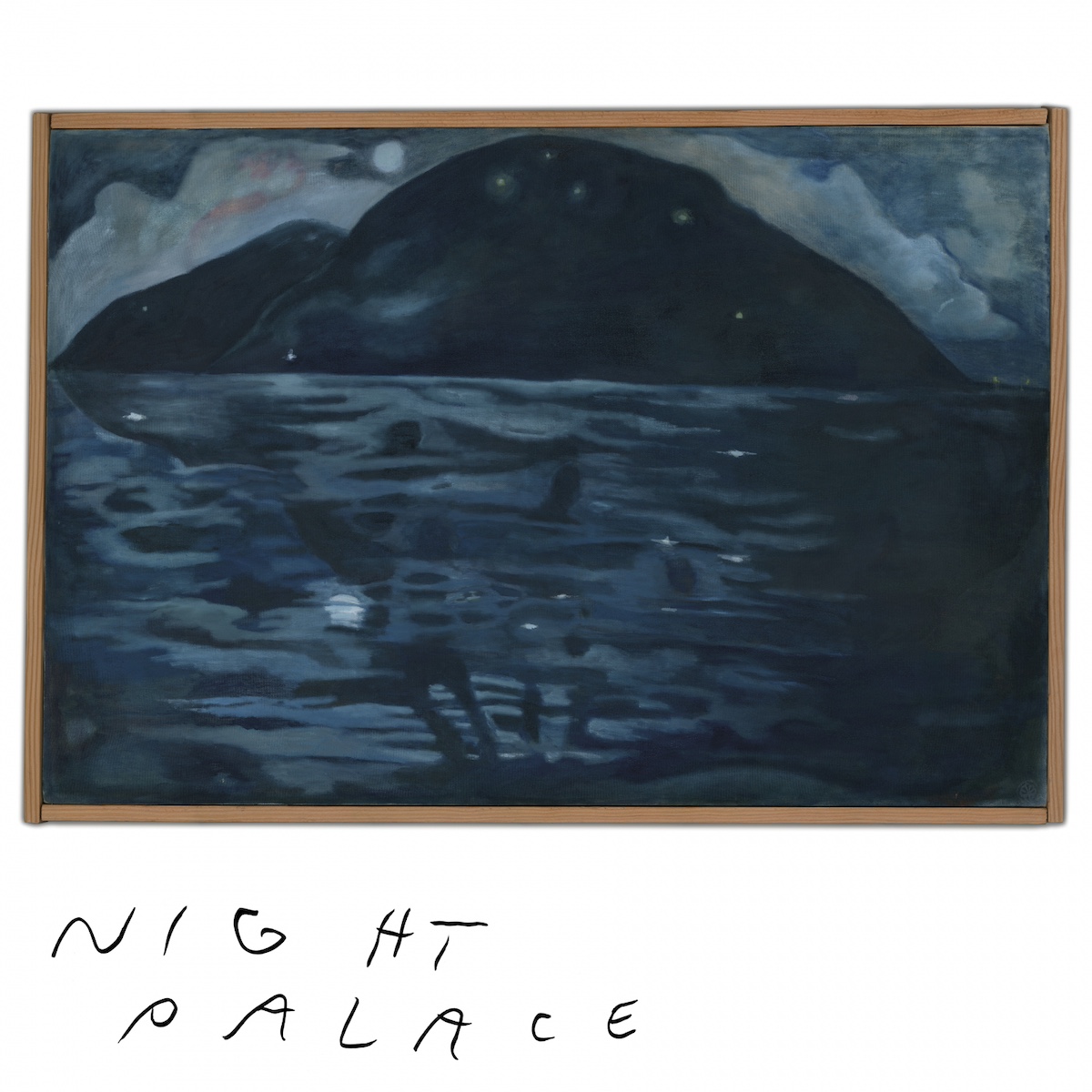
17.
Mount Eerie – Night Palace
[P.W. Elverum & Sun]
This is the real first moment of a new beginning: after confronting grief in the harrowing A Crow Looked At Me and recovering Now Only, and breathing through the spiritual and conceptual Microphones in 2020, Night Palace sounds like the first album of Phil Elverum where he finds the capability to birth a new version of himself – where the future is not merely echoing, but growing, living, breathing. Over 26 songs and 81 minutes, Mount Eerie‘s latest album explores folk, minimalism, ambient, black metal and – most of all – rock in ways that, while familiar, seem unburdened. And there’s memorable songs in the dozen. There’s the elegant, Wilco-esque vibe of “Broom of Wind”, the haunted house gloom of “Breaths”, the cathartic grunge of “I Saw Another Bird”, as sounding as if they exist on undated mid 90s mixtapes somewhere in a garage.
In its quiet moments, the album finds Elverum experiment with similar hauntology as the underappreciated Clear Moon, such as on the brittle decaying synths of “Myths Come True” and the apocalyptic “Stone Woman Gives Birth to a Child at Night”. Night Palace is so rich with sonic ideas, subtle ambience and rock euphoria, the album at times feels like the last of its kind – of a generation that found solace in messiness and analogue decay, precisely because it allowed for a reconfiguration of identity. Rock was, in a way, dead. So its memory, like ghost photos from the 19th century, had to process rebirth, onto a new form and eventually medium. Like the gnarled tapes Elverum must be all too familiar with from the 90s, and his own weathered psyche and body, Night Palace is about a world that is endlessly moving on. The past is not forgotten, but an organic part of the future. Death is not the end, as spring brings new flowers, some that only grow within the night. Right now, if you would ask me right here, this could be my favourite album of the Washington hermit so far. – John Wohlmacher

16.
Nala Sinephro – Endlessness
[Warp]
Nala Sinephro has cracked the vast equational landscape of sound, specifically altering the way we hear jazz and ambient modes in a given setting. Endlessness is her treatise on the complexity born of reduction, paring away and allowing small moments to bloom and inform the chaos that shapes our reality. Modular synths, harp, percussion, sax, and myriad other wired instruments collide and sync and diffuse across these tracks, creating a wide pool of music that moves under its own tidal impulses. Genres fall apart, never to be seen again – in their place, a collection of conversations, compositions winnowed and adjusted until their emotional nuance satisfies the desires of their architect. Sinephro has long found substantial connection in abstract companions, and Endlessness is a testament to those relationships and the turbulence we’re awarded as we navigate their mysterious tangles. – Joshua Pickard
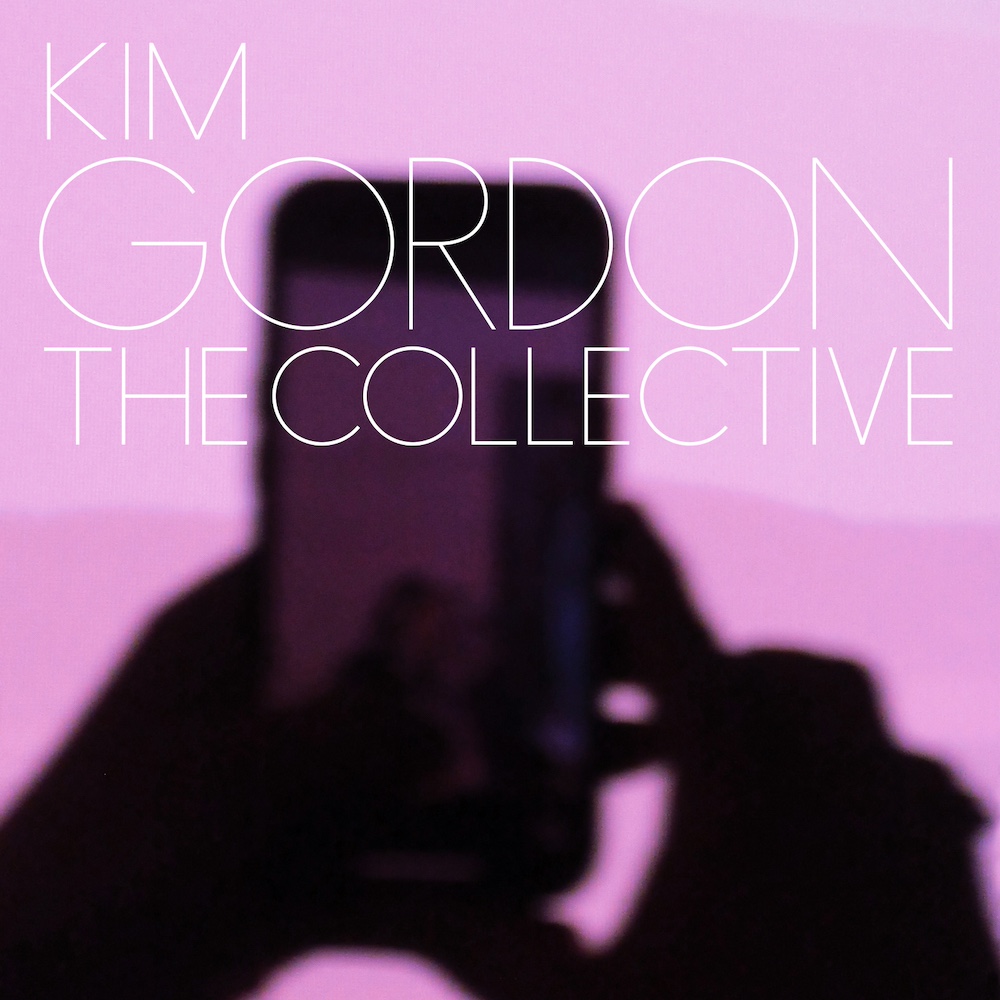
15.
Kim Gordon – The Collective
[Matador]
Could anyone make an innocuous packing list sound as cool as Kim Gordon does on “BYE BYE”? “Contact solution / Mascara / Lip mask, eye mask, ear plugs,” she intones in her unique way, not forgetting “vibrator” right near the end of the list. It helps that she’s backed by a riotous amalgamation of no-wave guitars and industrial beats that brings her legendary voice, weathered by decades on the front line of alternative rock, naturally to the present day. It’s a combination that she wrings to the maximum on the rest of The Collective.
Gordon is probably one of the few people who has perfect command of nonchalant perverseness to open an album with a song called “BYE BYE”. The rest of the record often finds her understatedly expressing her idiosyncrasies; whether she’s affirming “I won’t join the collective” on the title track, or embodying the toxic ideals of a macho caricature on “I’m a Man”. There’s also an exploration of consumerist culture across the album’s clipped lyricism that displays equal parts distrust and fascination. Whether it’s $20 potatoes, Chinese-made fashion or gift shop crap, Gordon can’t help but notice it, for better and worse – her sneering messaging is a castigation of all of us, herself included.
However, The Collective is really a triumph of sonics, demanding to be turned up loud to get the full impact of the quaking low end, the cavernous layers of feedback and the foundation-ratting beats. Atop it all, Gordon glides as insouciantly and as iconically as she ever has; a fireball of inspiration that has been scorching for decades and shows no indication of burning out any time soon. – Rob Hakimian
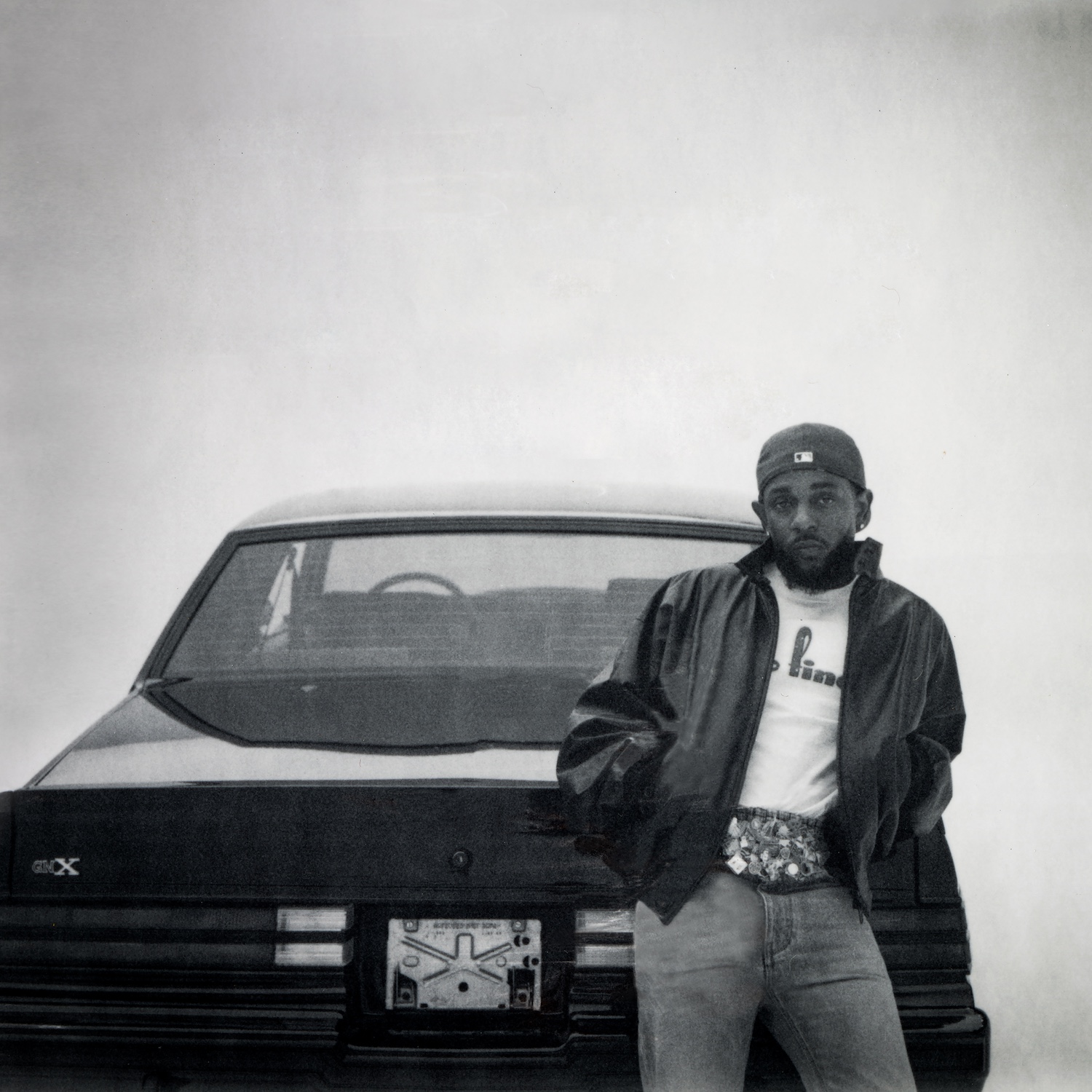
14.
Kendrick Lamar – GNX
[pgLang/Interscope]
How, then, was Kendrick Lamar going to follow up…all that. Some have been quick to label GNX a victory lap – and, surely, some chest thumping was going to be inevitable following essentially crippling the vice grip that the vacuum of Drake has held on popular rap for far too long – but, if anything, GNX feels like a fistbump rejected. Lamar is stewing here, seething and prickly, snarling at the rap (to let Yasiin Bey tell it) “compatible with shopping” he’s been railing against, his defensive, envious peers, and – deep down more than anything – himself.
The folk objecting at the sort of music that primarily dominates GNX are the sort that feel a narrator need remain the sympathetic hero to be constructive or fulfilling. Lamar has spent most of his career both being, deflecting from being, and reckoning with being, a cultural hero. The super villain hat is an interesting one.
Meanwhile, the album doubles as a well-earned love letter to the West Coast, with some of most immediate production of K.Dot’s career – while also finding time for something as singularly strange as the incredibly spartan boiler “Hey Now” that also squeezes in some OutKast energy (“Startin’ to see spaceships on Rosecransssss”) – and beneath all that teeth baring, Lamar remains benevolent, ceding time across the album to virtually unknown voices from younger Cali upstarts. GNX is both an exercise in deepseated, perhaps even concerning, anger, the work of a titan left still feeling unfulfilled, and an act of generosity. As in all his greatest work, Kendrick Lamar remains an intoxicatingly unknowable messy ball of contradictions, indecisive restfulness blended with an enviable certainty. – Chase McMullen
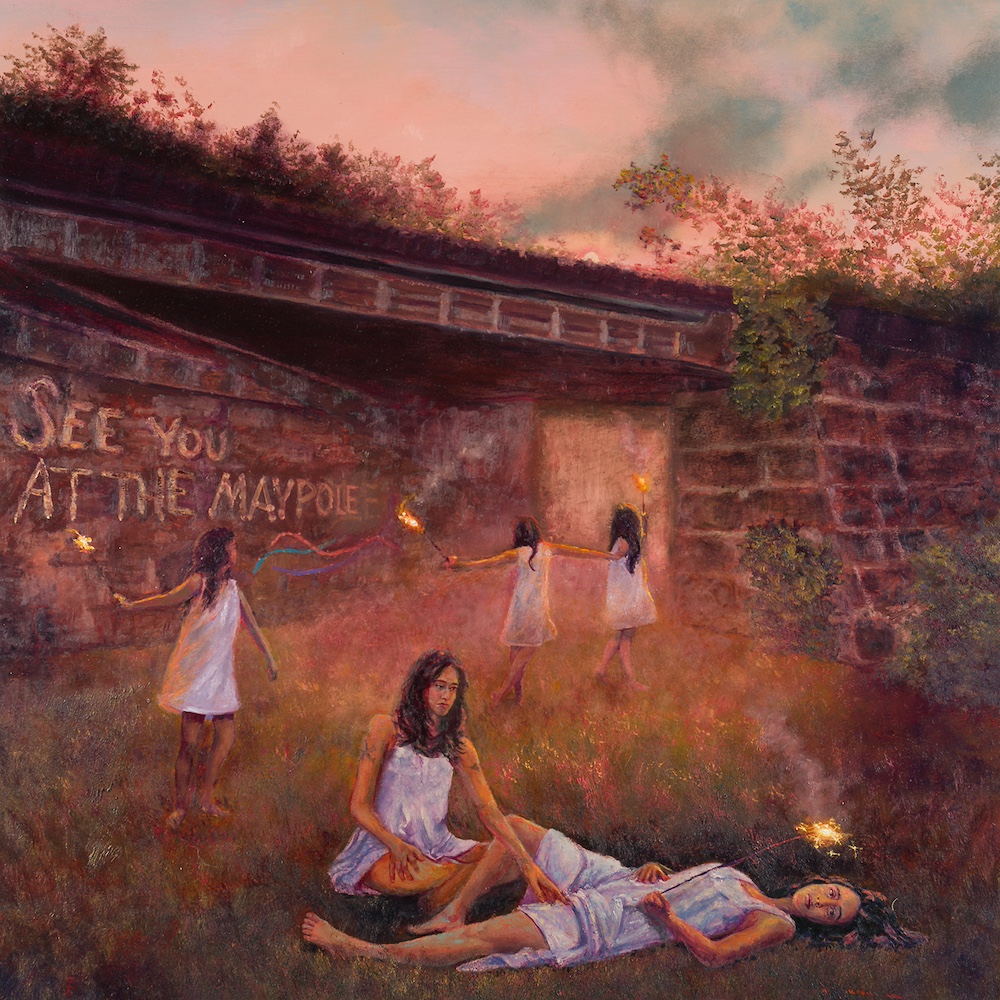
13.
Half Waif – See You At The Maypole
[ANTI-]
This summer I saw Riki Lindhome’s musical stand up show Dead Inside. Over the course of an hour she detailed her pursuit of motherhood: reckoning with a diagnosis of endometriosis and perimenopause, the expensive and demanding process of IVF, and having to abort a child as “the heart was growing in the wrong place with major genetic mutations”. It was a devastating decade of fertility trauma to recollect, complete with stories of injecting hormones in the LAX parking lot, adoption disappointments, and multiple botched surgeries. Even though she broke up the life-changing hardships with humour and musical comedy, the stories were eye-opening (particularly for a cis man like myself). They spotlighted both the damaging narrative that society perpetuates about women, fertility, and motherhood (“There’s an undertone that it’s your fault,” Lindhome notes), but also things that are easily taken for granted, namely like why women delay the announcement of pregnancy until three month in. The reason for that (which I hadn’t given proper consideration to until Lindhome pointed out to me) is because this is the time during the pregnancy when someone is at the greatest risk of having a miscarriage.
So when Half Waif‘s new album See You At the Maypole arrived in October, it hit like a ton of bricks, a second act of devastating, heartbreaking loss. Largely reckoning with a miscarriage as well as learning that her mother-in-law had pancreatic cancer, Nandi Rose goes against the socially acceptable thing to do and processes her grief out loud, trying to find solace when the world has seemingly abandoned and betrayed her. She sings plainly of the devastation known by so many, but that is still intensely personal. “How can there be life inside me / And then death?” she asks on the stirring “Sunset Hunting”. There’s visceral tragedy (“I don’t want to talk, I want to hold still / So I don’t spill the contents / I’ve been trying so hard to keep it filled”), but also healing hope (“Head up / It’s gonna get so much better / You’ll see”).
See You At The Maypole is a grand hour-long opus, but it’s all necessary, all part of the process of facing grief head on and working through to the light. Throughout it Rose references an abundance of colours, creating a synesthesia of emotion (“A green kind of sadness”, “Driving into purple twilight”) and it fuses beautifully into her descriptions of nature and the natural world – a haven of comfort for her during this time. “Collect Color” she titles one track, iterating the same sentiment a few sings later; she’s picking the joy she can from the world around her, shades and hues that themselves offer comfort.
Like Rose details, each listen to See You At The Maypole itself feels like an intensely personal experience, a singular moment that each person will connect with differently. For some it will be comforting to hear of such unspoken tragedy addressed plainly and beautifully, for others it will conjure sympathy for days. And even as desolate as Rose gets – capturing loneliness in her singular way (“I cannot shake the feeling / That there’s no one looking out,” she sings on the glistening “Big Dipper”) – her despair finds the light. As she declares over processed, wailing voices at the heart of the album, “I’m not a failure, I’m an ephemeral being.” See You At The Maypole is a golden reminder of that. – Ray Finlayson

12.
Beyoncé – Cowboy Carter
[Parkwood/Columbia]
What conventional narratives underline the country genre? Sacrifice for the family unit? Romance that is troubled yet true? The lamentation of a nation finding it hard to maintain the values they were built upon? If this is the case, then Beyoncé respectfully incorporates these into her eighth studio album Cowboy Carter, the second instalment of the Renaissance trilogy…
That is, before completely destroying convention with a quickdraw and a wink.
On her majestic white horse, rather than gently canter at the edges of the corral; Beyoncé rides directly into the saloon and knocks over the spittoon. Cowboy Carter encompasses a lot of adjectives: indulgent and epic; earnest and campy (no pun intended); and even delightfully bizarre on occasion – but never once boring.
In her typical fashion, Beyoncé paradoxically constructs the country genre in her own image while maintaining that genres really don’t have a place in her world. Fiddles square dance with trap beats (“TYRANT”), operatic vocals ominously intrude upon a post-mistress murder (“DAUGHTER”), and coyotes, wolves and carnivores become the source for existential pondering on the desert dancefloor (“II HANDS II HEAVEN”).
The album’s multi-faceted sonic nature also effectively correlates to the multi-faceted nature of Beyoncé herself. She is equally willing to soliloquise adoration for her children (“Protector”, “My Rose”) as she is to embody a shit-talking Thanos (“Spaghetti”); to epically lament the crumbling foundations of her divided country (“AMERIICAN REQUIIEM”) as she is to praise her sexy selfies (“LEVII’S JEANS”).
Brazen, defiant, experimental, and brimming with pathos, Cowboy Carter is a glorious statement of an unstoppable artist who keeps climbing to new heights just right when you think she has reached the apex. Beyoncé’s most progressive project thus far is both a love letter to country music and the black country artists who carved space within it, and also unapologetically future facing. – JT Early
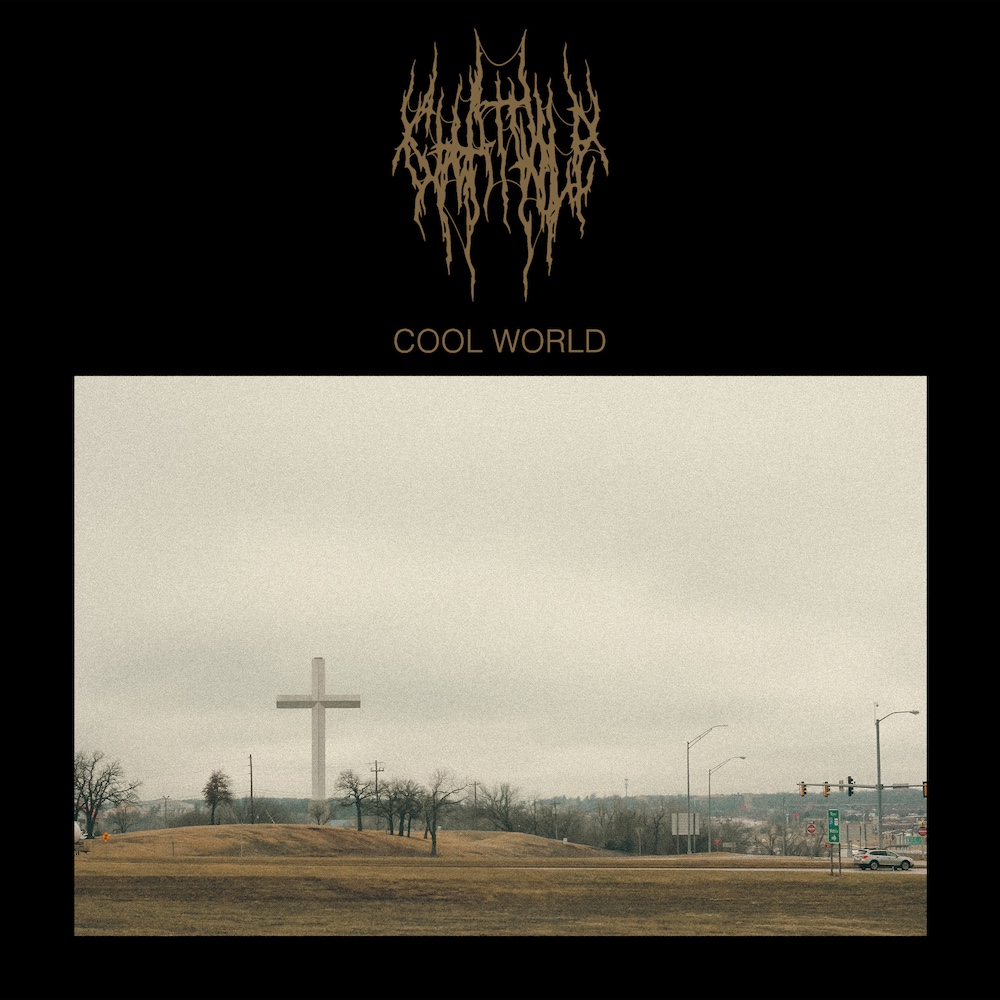
11.
Chat Pile – Cool World
[The Flenser]
With the follow-up to their 2022 debut, God’s Country, Chat Pile revel in creative freedom while addressing existential, social, and cosmic brutalities. Cool World launches with “I Am Dog Now”, Raygun Busch’s voice brimming with volatility. “You see nothing,” he snarls, commenting on the world’s complacency, the band pivoting between riffy progressions and noisily melodic interludes.
With “Shame”, the band oscillate between propulsive rhythms and elegant flourishes. Busch indulges in an unrestrained rant and a few well-placed growls. “I trust and bleed”, he moans on “Masc”, sarcastically summarizing the way intergenerational conditioning works, as Luther Manhole spools his wiry guitar around Stin’s thumping bass. On “Tape”, Busch repeats “It was the worst I ever saw” over and over, forging a nightmarish mantra. He bombards the listener with images of dehumanization, hoping to wake people from their comfortable and socially reinforced trances.
With Cool World, Chat Pile continue to integrate metal, hardcore, punk, and rock elements, transcending (and often exceeding) their sources. Busch exemplifies the chameleonic frontman, balancing neurotic machismo and frazzled dejection. Cool World is instrumentally compelling, vocally enthralling, and lyrically calls out the horrors of late-stage capitalism. – John Amen
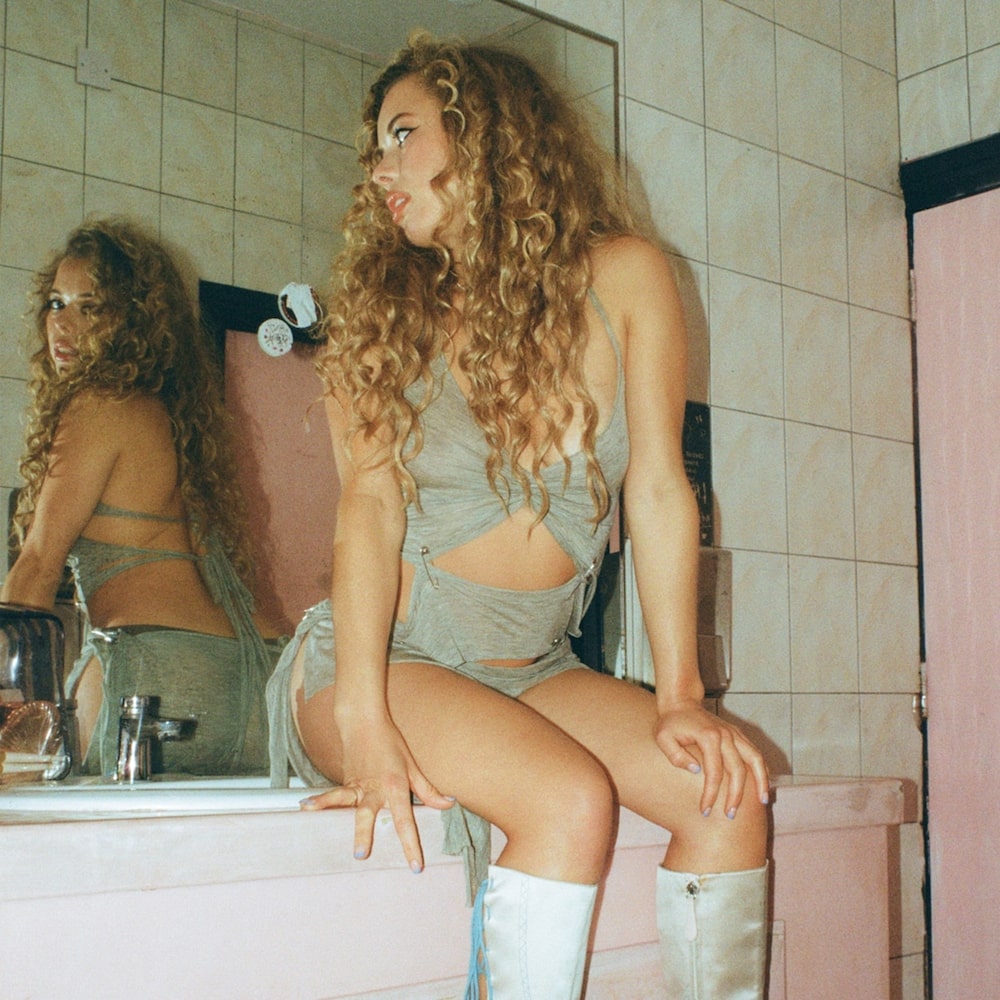
10.
Nilüfer Yanya – My Method Actor
[Ninja Tune]
Nilüfer Yanya is approaching the end of her 20s, having burst onto the scene at the start of her journey through that most formative of decades. It’s possible to trace her emotional evolution through her records, and her music has matured right alongside it, with My Method Actor acting as the cap stone to an incredibly strong foundation for what could very conceivably become a long and storied career.
After the precocious braveness shown on her early releases and the significant level up that was her second album PAINLESS, My Method Actor is a clear-headed, confident consolidation of everything we’ve come to love and admire about her work. Heartache remains a constant topic, but there are new levels of self-possession that deepen the quality of the messages being transmitted.
While the sugar rush of self-determination that is “Like I say (I runaway)” reminds us what Yanya can do when ratcheting up the energy, My Method Actor is an album more dedicated to measured examinations of emotional scars. “Binding” is an honest observation of an infatuation that drove Yanya to unhealthy lengths, the steady and gorgeous instrumentation letting her – and us – linger in that moment a little longer. The regal melancholy of centrepiece “Ready for sun (touch)” is an exquisite interrogation of a once-bright flame that’s now sputtering out, the cinematic strings adding new levels of pathos. “Faith’s Late” wallows in what could easily be self pity in a lesser writer’s hands, but turns instead into a luminous message of strength. With each successive track, Yanya reveals more of herself as a person and a songwriter who is mature beyond her years and with much more yet to give. – Rob Hakimian

9.
Cassandra Jenkins – My Light, My Destroyer
[Dead Oceans]
Singer-songwriter Cassandra Jenkins broke out a bit with her last record’s big single, “Hard Drive”, which dominated several year-end lists in 2021 (including ours). The song featured a fair bit of spoken word, along with some downright dreamy keys, horns, and gentle singing. That dreaminess — along with some added grit and edge — blossoms more fully on her newest LP, My Light, My Destroyer.
With arrangements boasting supple horns and bass, some rough-hewn guitars, swimming keyboards, steady drums, all led by Jenkins’ deceptively simple and smooth voice (which often betrays a gulf of emotion in the span of a couple soft syllables), the songs on this record unspool. Its pace is a little unhurried, and perhaps there’s one too many interludes, but everything here hangs together so beautifully, like a collection of precious jewels and gowns. Whether it’s the jazz-inflected spaciness of “Omakase”, or the grungy “Petco”, or the indie rock zip of “Clams Casino”, or the Enya-indebted soundscapes of “Delphinium Blue”, My Light, My Destroyer sees a promising artist grow even more promising. – Jeremy J. Fisette
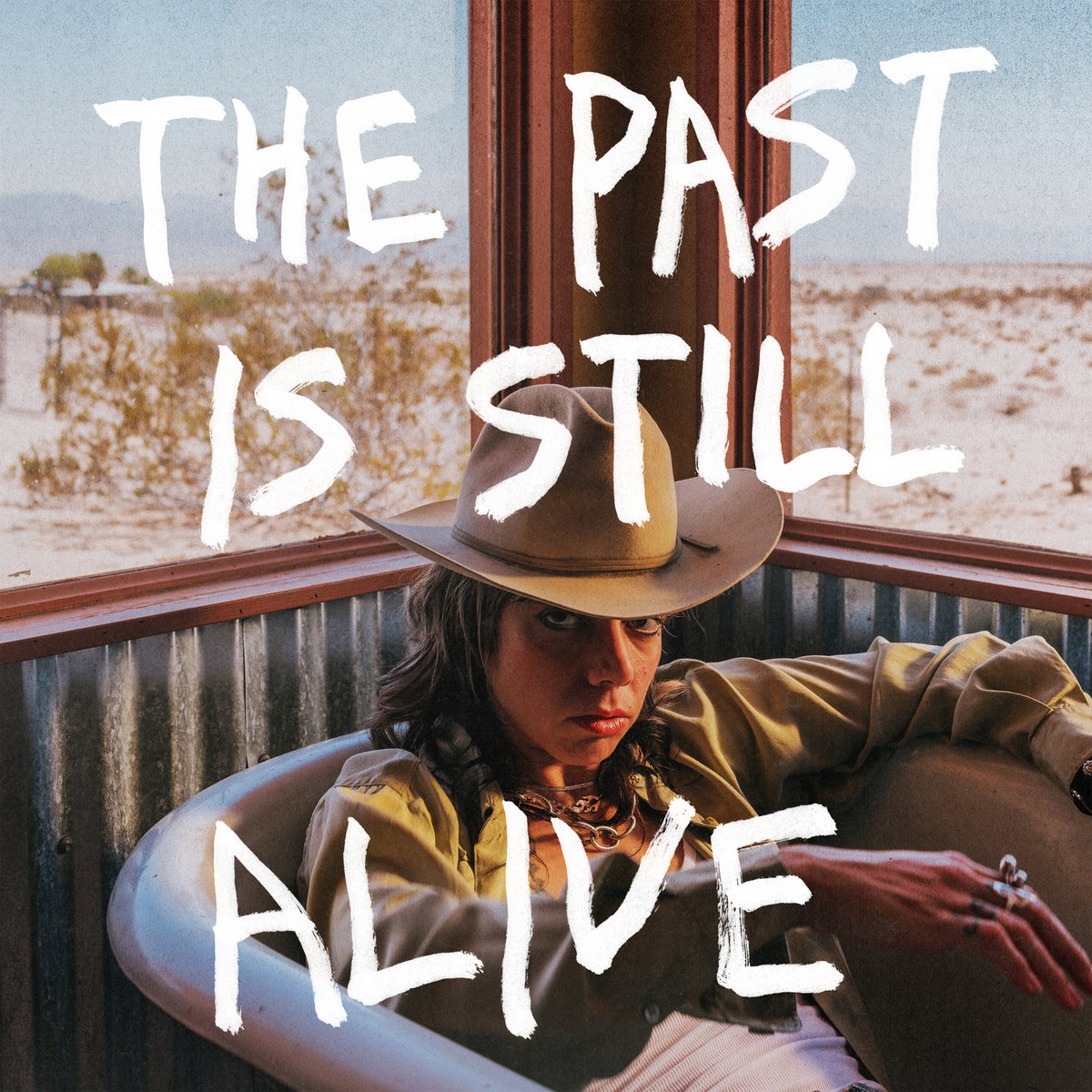
8.
Hurray For The Riff Raff – The Past Is Still Alive
[Nonesuch]
Hurray For The Riff Raff’s Alynda Segarra is a careful study of folk music’s roots – in 2015, they penned an essay urging the genre’s singers to “fall in love with justice”. Their eighth album The Past Is Still Alive offers their most fulfilled musical expression of this idea to date. Across 10 tracks Segarra charts character studies in addiction, strained relationships and gender nonconformity. In the process they create not only a rich Americana album that already sounds timeless, but a roadmap for surviving a cruel world. Amidst hardship and what can feel like an endless fight against the odds, a battle cry emerges on “Buffalo”: “This year tried to kill us, baby / Well good luck trying, you can’t catch me!” – Tom Williams

7.
Mannequin Pussy – I Got Heaven
[Epitaph]
Mannequin Pussy‘s I Got Heaven is an album of extremes, where catharsis is found in cooing melodies and unhinged shouts alike; where love burns as bright as a thousand suns and barks are just as punishing as bites. We hear the yearning for love on the 90s alt-tinged “Nothing Like” and the gritty tribute to Dabice’s mother on the scarring punk anthem “Of Her”.
“And what if I was confident would you just hate me more?” Marisa Dabice snarls on the album’s title and opening track. It’s equal parts truth and dare, a body armor that might only be tissue-paper thin. This line—and so many others—succeeds because it displays the push-and-pull between vulnerability and self-empowerment. It’s a hefty lift for a brisk 30-minute album, but the Philadelphia punks nonetheless lay themselves out, split themselves open, and leave nothing unsaid. It’s a queue more of us should follow. – Carlo Thomas
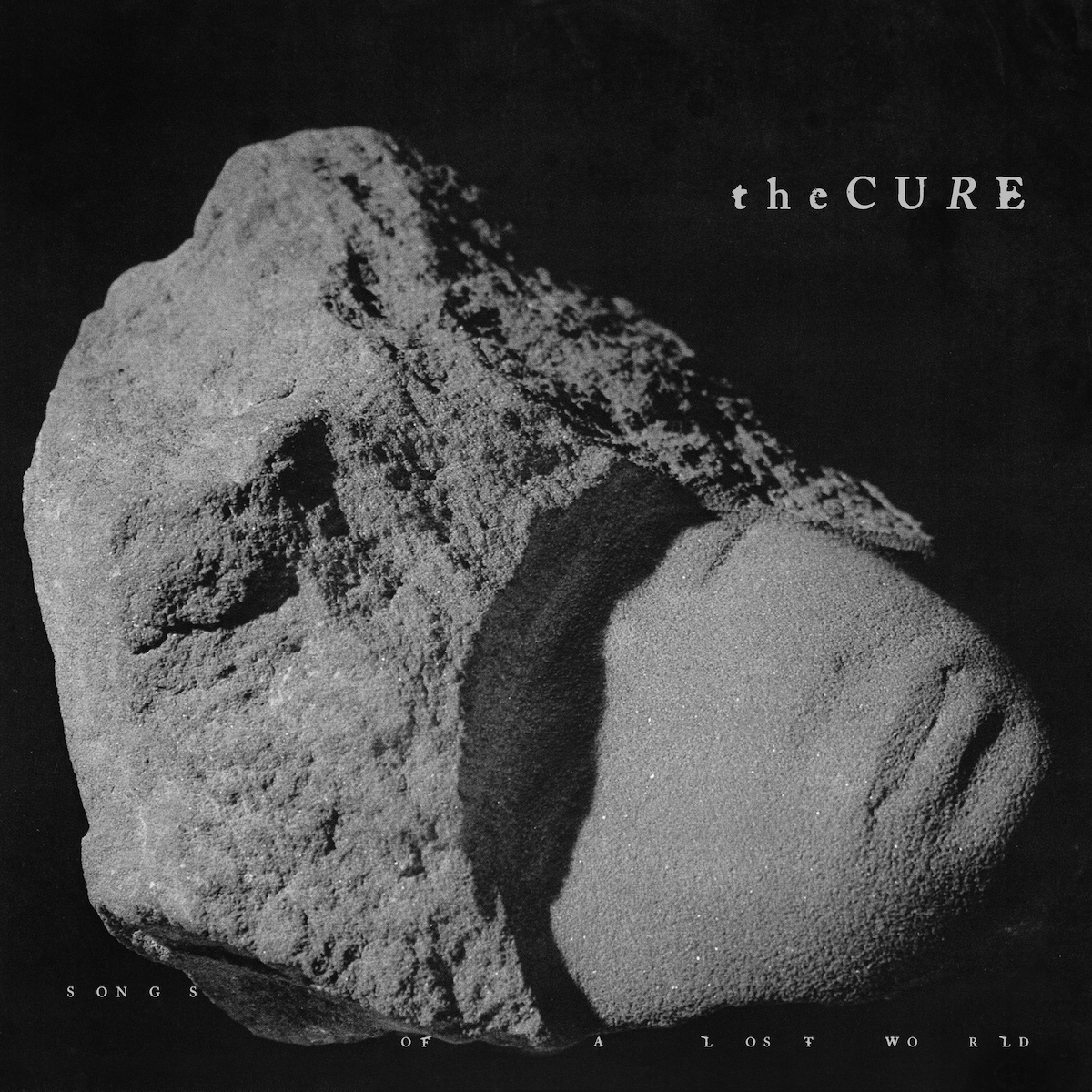
6.
The Cure – Songs Of A Lost World
[Polydor/Lost Music]
Sadness has rarely felt as profound, pertinent and strangely welcome as it does on Songs of a Lost World, The Cure‘s long-awaited return after 16 years. In a world awash with anger and chaos, this album offers reprieve through devastating beauty that speaks to a confusion and fragility that spans generations—a testament to the band’s timeless essence. Echoing the raw, haunting spirit of their finest work, the record finds Robert Smith’s voice as resonantly withered as ever, perfectly entwined with the band’s love-struck goth alchemy in a manner that channels heartbreak and longing with a supernatural intensity.
This dramatic and sweeping record carries with it a weathered wisdom that shows that the band has lived through decades of change and yet has never lost its soul — The Cure remain unmatched in transforming sorrow into transcendent art. Even with Smith revealing that there are two more records in the works, it’s quite possible Songs of a Lost World is the band’s final message to us—after all, we waited 16 years for it. So if this is their last, what a breathtaking gesture, defined by both poignant melancholy and enduring grace—a final offering that could only be of The Cure. – Kyle Kohner
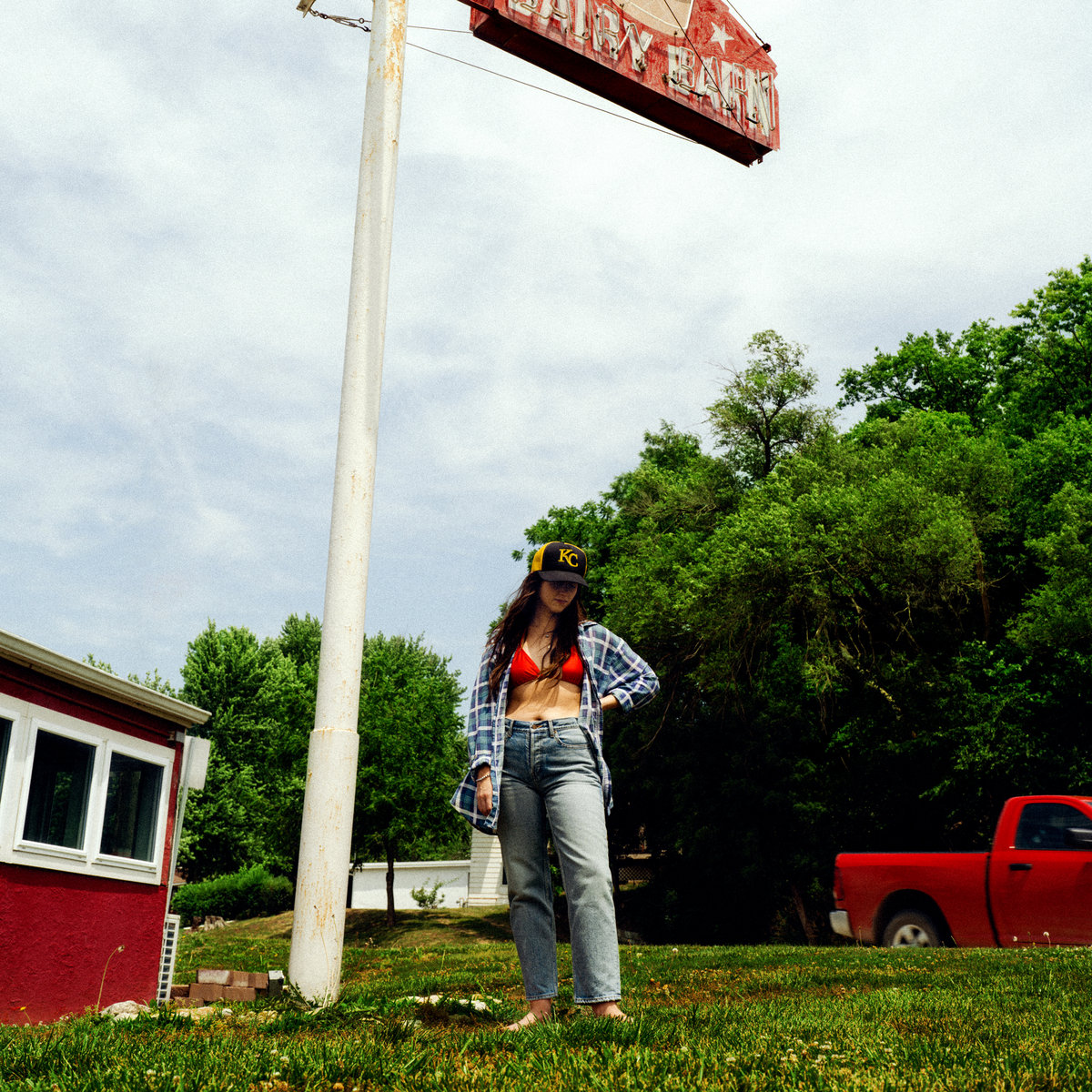
5.
Waxahatchee – Tigers Blood
[ANTI-]
Tigers Blood proved that 2020’s Saint Cloud – which marked Katie Crutchfield’s sudden turn to Americana amidst newfound sobriety – was no fluke. Expanding on that album’s template, and once again working with producer Brad Cook, Crutchfield created her richest, most fully-developed artistic statement this year with her sixth Waxahatchee album.
Opener “3 Sisters” expertly utilises loud-quiet dynamics, beginning nearly acapella and eventually breaking into a gorgeous full band arrangement as Crutchfield lists a litany of hard-won revelations. Later, there’s “Crowbar” – which boasts one of her strongest melodies to date – and “365” – a staggering meditation on addiction. The undeniable centre piece is “Right Back To It”, a lilting duet with MJ Lenderman that finds peace in enduring connection and a stabilising force in a loved one. What remains constant throughout Tigers Blood is Crutchfield’s ability to turn time-worn truth into musical brilliance. – Tom Williams
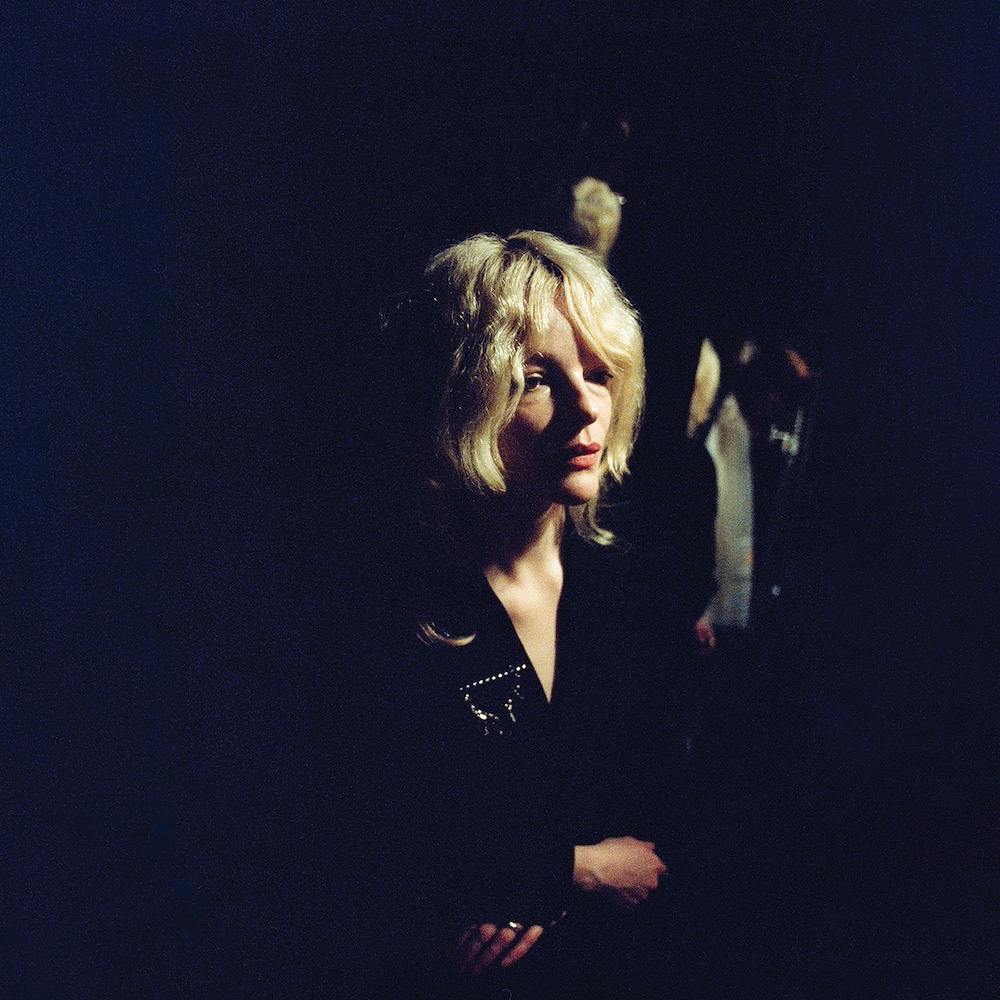
4.
Jessica Pratt – Here In The Pitch
[Mexican Summer/City Slang]
The fact that I simply don’t quite know how to express my love for this album is exactly what makes it so special. While other folk greats in her general space – Julie Byrne, Ichiko Aoba, Rosie Byrne, etc – have framed themselves around an undeniably unique, yet certain distinctive beauty, Jessica Pratt is even more inscrutable.
Her music possesses a certain weird netherworld all its own. Indeed, on the most obvious surface, much of Here in the Pitch is damn simple. Yet, it somehow lurks within a genuinely weird world that’s decidedly all its own. She keeps it brief, and that’s all that’s needed. Every second feels like a lost glance, hardly remembered through a melancholic wizard’s mirror. Amidst the dust and crannies is a soft reservoir of emotion and longing.
It’s music somehow both lost in time and distinctly present. The sort of feelings you risk losing the moment they’re out of sight, like a powerful dream you swore you’d never forget, yet escapes just behind your eyelids the moment you wake. It’s music as lost in time and memory as all of us are. Snow hitting the ground only to melt after a lingering second. Harsh warmth would threaten to disappear its brittle beauty, were it not stuck defiantly to a record. Music as out of time as any of us are in the ever-encroaching worldwide exhaustion and danger of 2024, yet songs that are subtly built to persist. It’s a kinder salve than we deserve, these days. – Chase McMullen
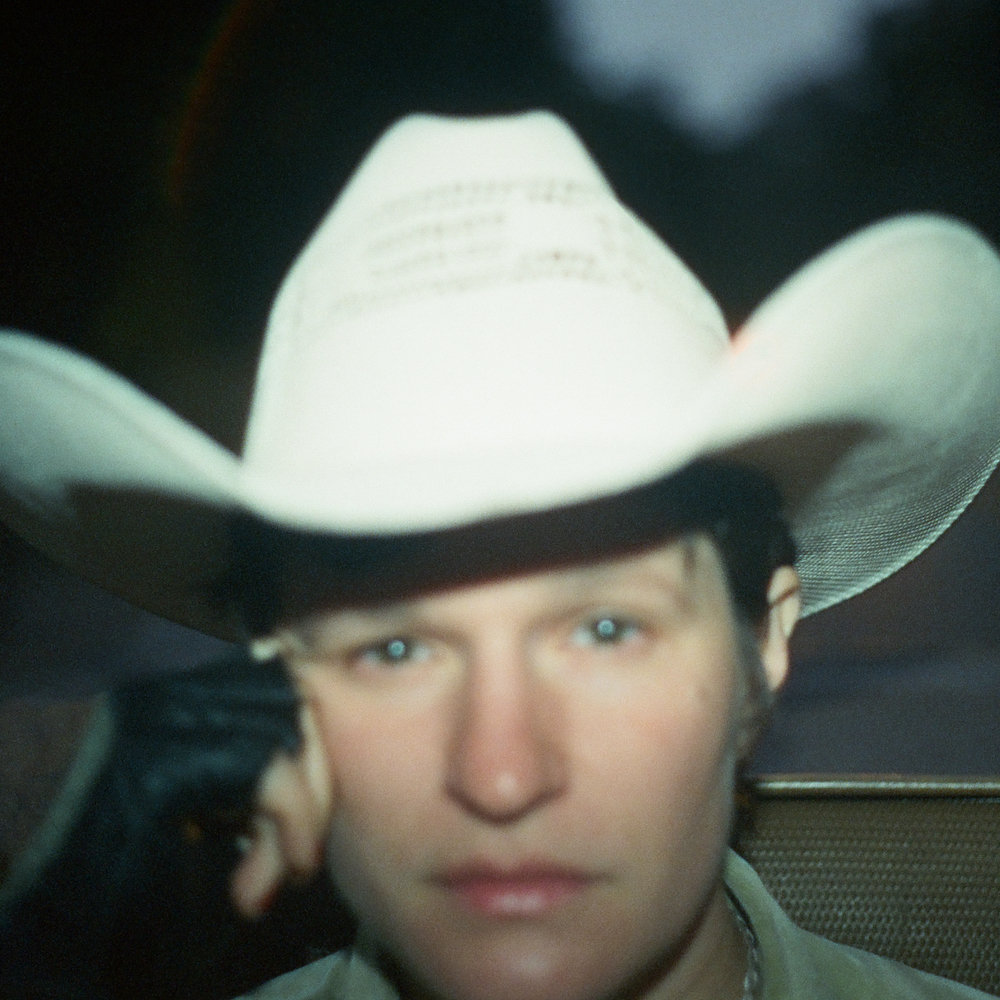
3.
Adrianne Lenker – Bright Future
[4AD]
Deeply introspective and enriched with a robust strength, Bright Future is Adrianne Lenker‘s most diverse and fully-formed solo work yet. At times reminiscent of a travelogue, of physical and emotional places, the album explores transformative experiences with the curious eyes of a child. It serenades Lenker’s family dog to find a key understanding of her mother’s emotional complexity. “Fool” dives into the life path of multiple friends and wayfarers in order to learn about personal growth. “Ruined” nakedly reveals every facet of heartbreak, reduced to a single statement, a stab in the dark: “You come around, I’m ruined!” Where songs/instrumentals was a work reflective of isolation and struggle, Bright Future moves on, unkempt and without limit.
The record is not united by a single sound, instead capturing stylistic snapshots that differ wildly. Lenker resembles John Lennon or Neil Young in one moment – tearing into barren room sound, like a live performance – only to recover into the sonic complexities familiar from Elliott Smith or Joni Mitchell. Typical for a cancer sun, she adapts her songs – and herself – to any recording situation, high and low fidelities, perfectionism and rustic charm. Throughout Bright Future, her two modi – guitar wielding rock star and hippie pregnant with wanderlust – find balance in a single charismatic expression. Almost effortlessly, the record takes its spot in a line of modern folk masterpieces, the type of album people will look back on in 20 years and realise it’s the soundtrack of a lifetime. – John Wohlmacher

2.
Charli xcx – Brat
[Atlantic]
Everything has been Brat this year: summer, your smudged eyeliner, the remixes, a Presidential candidate. But nothing, of course, is more Brat than the original album, the epitome of the now forever-changed word. Catapulting Charli xcx into the stratosphere, the album is pivotal as an ultimate breakthrough for the Essex musician who has always been on the cusp; if Charli xcx was a TikTok artist last year, she’s now an master of every social media platform, inspiring everyone from your weird Tumblr friends, to your white wine aunt on Facebook, to the salacious guy sliding into your Instagram DMs.
Is there another album this year with such a discernable (and now iconic) few opening notes? When “360” starts up, everyone knows what’s coming: a deliriously fun party album that isn’t afraid to bring vulnerability to the surface. The galvanising synths of “Von dutch”, the skittery bob of “Apple” (and the now compulsory dance too), the call to arms of “Girl, so confusing” and “Mean girls”, the pleading titular sentiment of “Sympathy is a knife”, or the thoughtful narrative of “I think about it all the time”; these are the sounds of Brat, the songs that have rippled through the year, triggering joy, starting parties, and reminding us that it’s okay to doubt everything as the music is pumping around you. This is life, and life is – you guessed it – Brat too. – Ray Finlayson
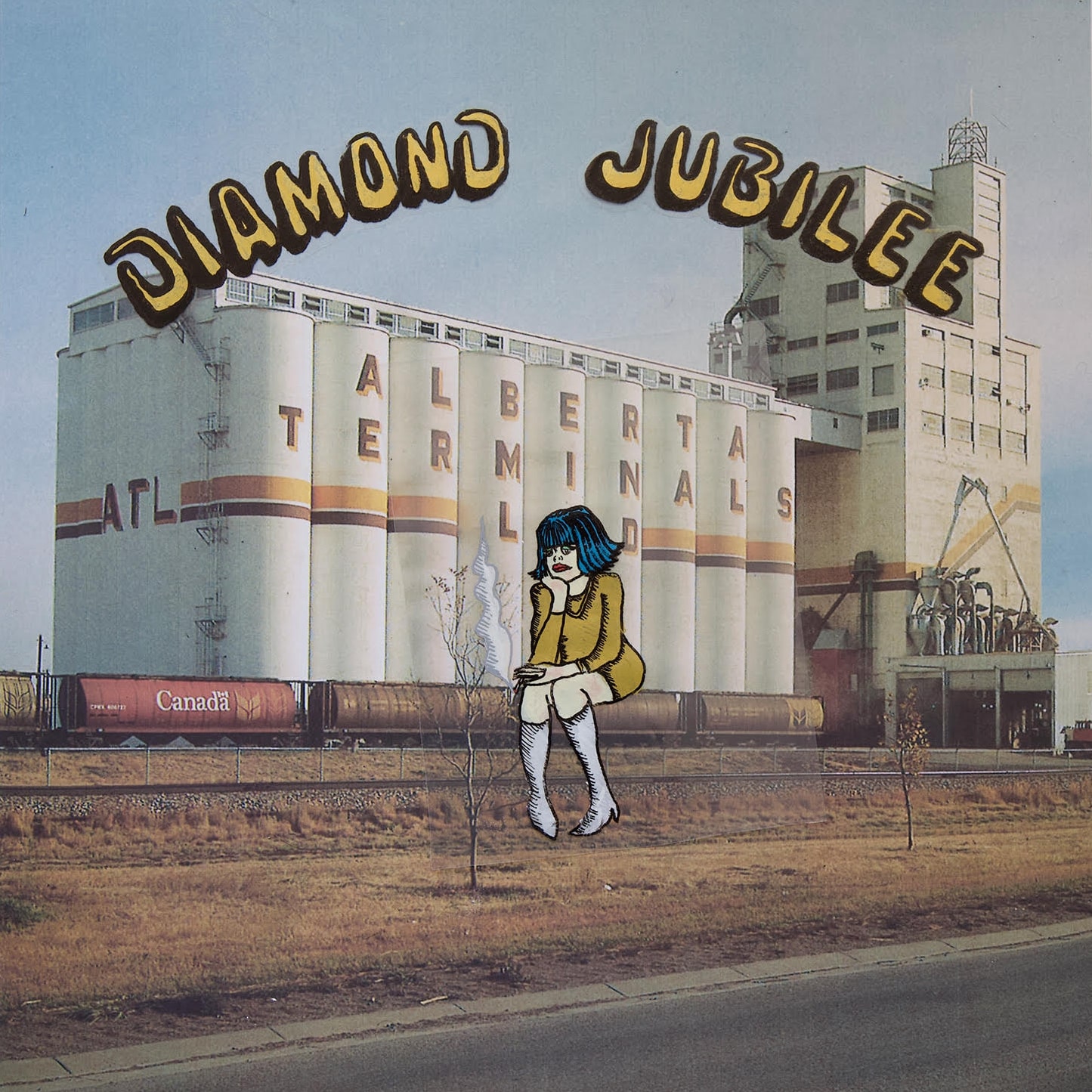
1.
Cindy Lee – Diamond Jubilee
[Self-released]
Music piped in from an alternate realm, unfurling via some AM frequency you need a secret passcode to access. Such is Cindy Lee’s beguiling Diamond Jubilee. “Glitz”, for example, blends a 50s pop tilt, a 60s-esque, psychedelic leaning, and a 70s quaalude-party vibe. The bluesy rhythmic lick references The Beatles’ “Revolution” but moves past or beyond it, tapping into a Midwest garage vibe.
“Always Dreaming” features Patrick Flegel’s otherworldly vocals, conjuring a 45 playing in some “teenage wasteland” or a music box discovered in the closet of an abandoned house. “Kingdom Come” forges compelling contrasts with its ethereal vocals and staccato guitar chops.
The title track revels in DIY sensibilities, evoking the broad continuum of Americana, from the fundamentals of The Carter Family to the pop brilliance of The Ronettes to the meticulous architecture of Brian Wilson. “Lockstepp” features discordant guitar lines and prominent yet slightly draggy drums, drawing from both trippy glam and slacker goth.
Bringing to mind a troupe of hungry ghosts left alone in a warehouse studio, Diamond Jubilee integrates exquisite melodies, shimmering textures, and a vintage gestalt, the album leaving its unique, singular, indelible mark. – John Amen
Listen to a Spotify playlist of our highlights from our Top 50 Albums of 2024 here.
Check out our Top 50 Songs of 2024 here.

